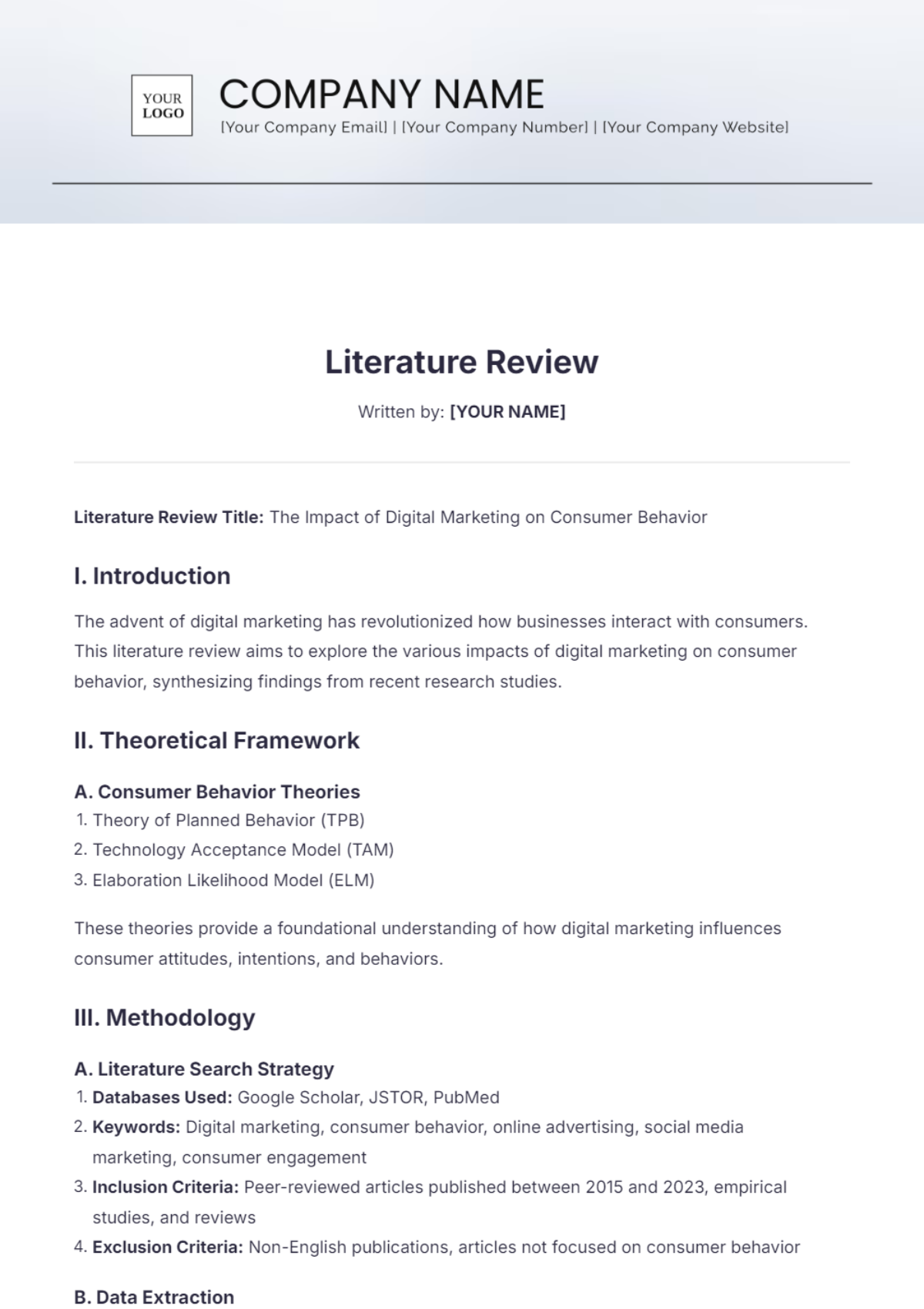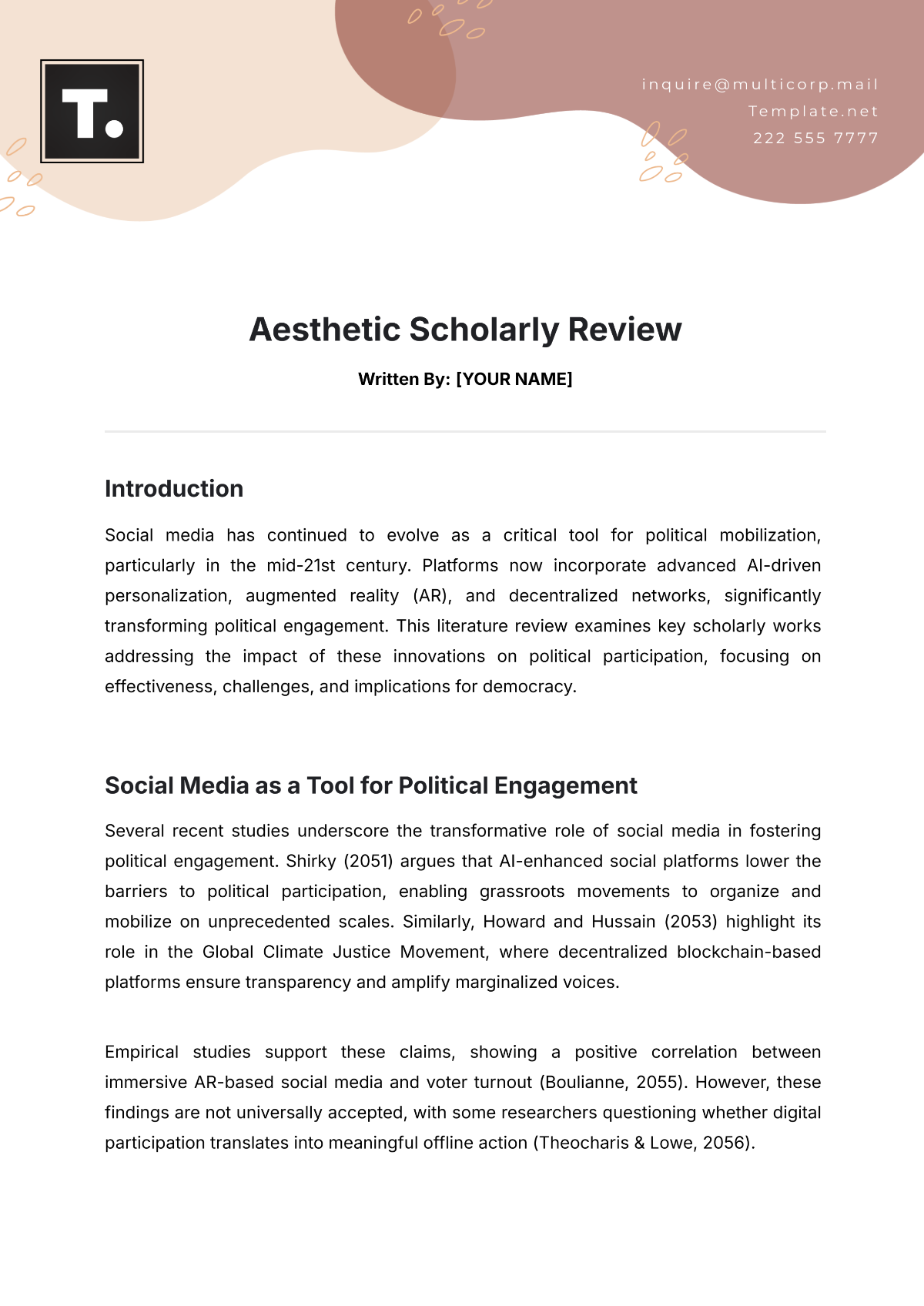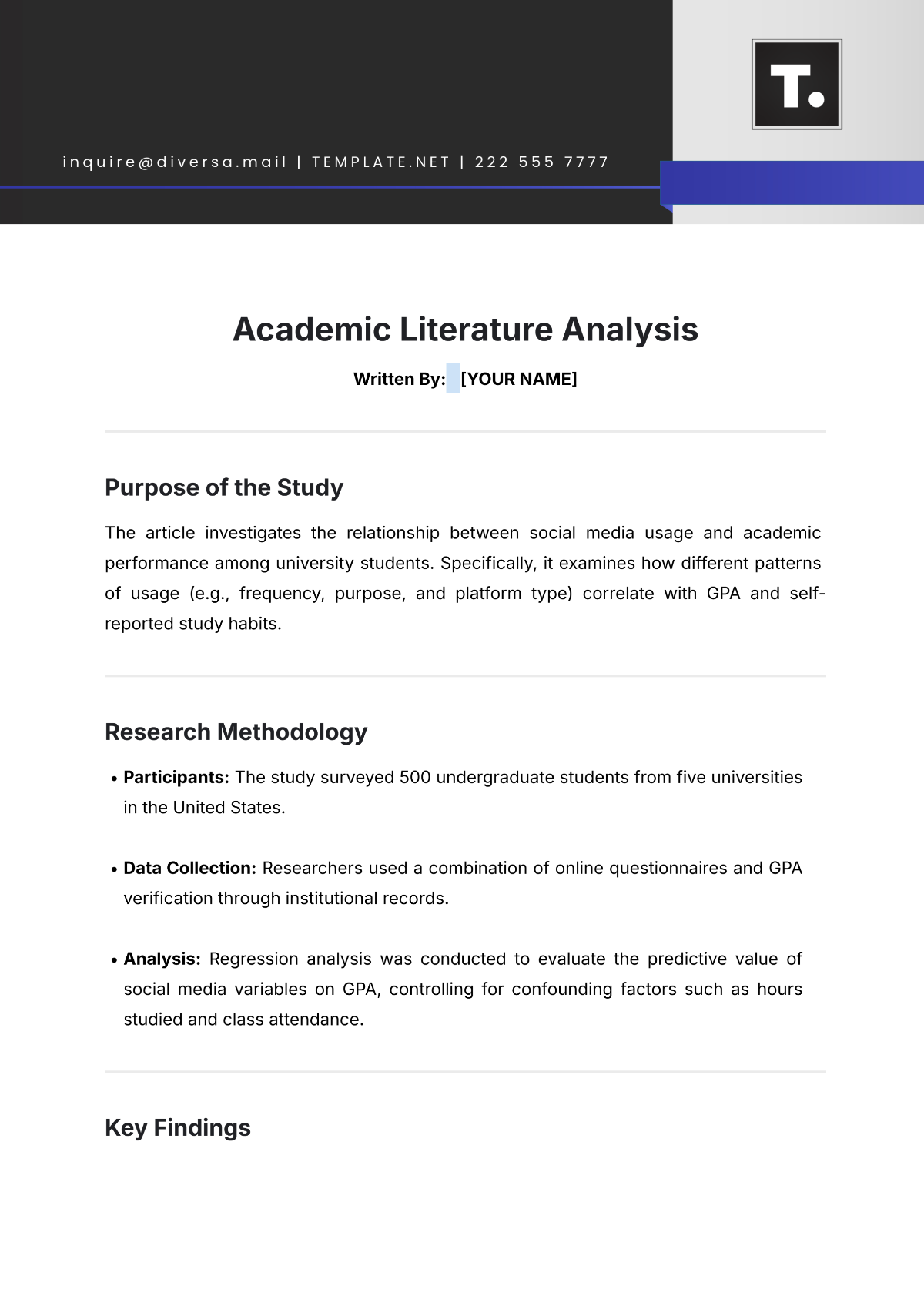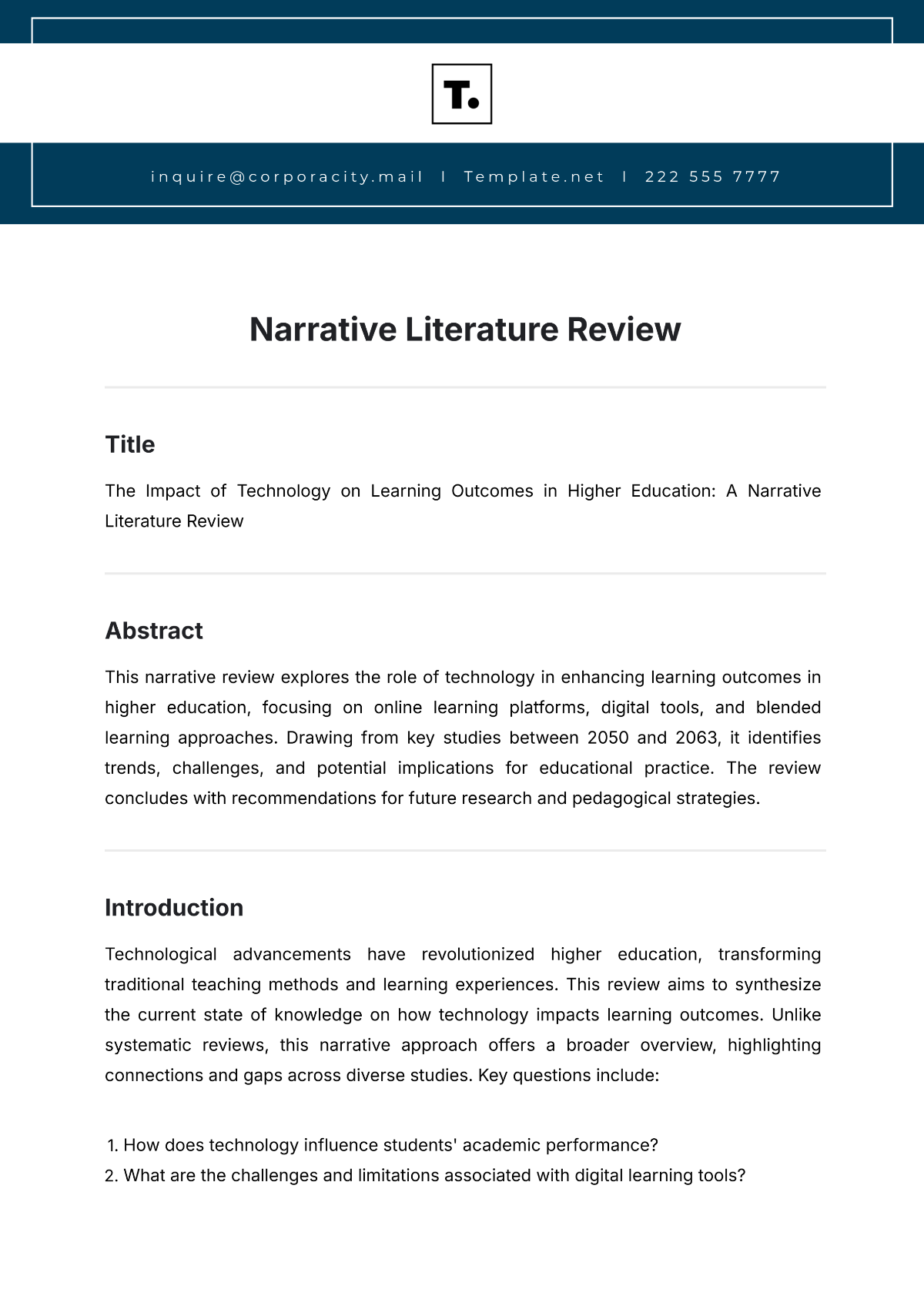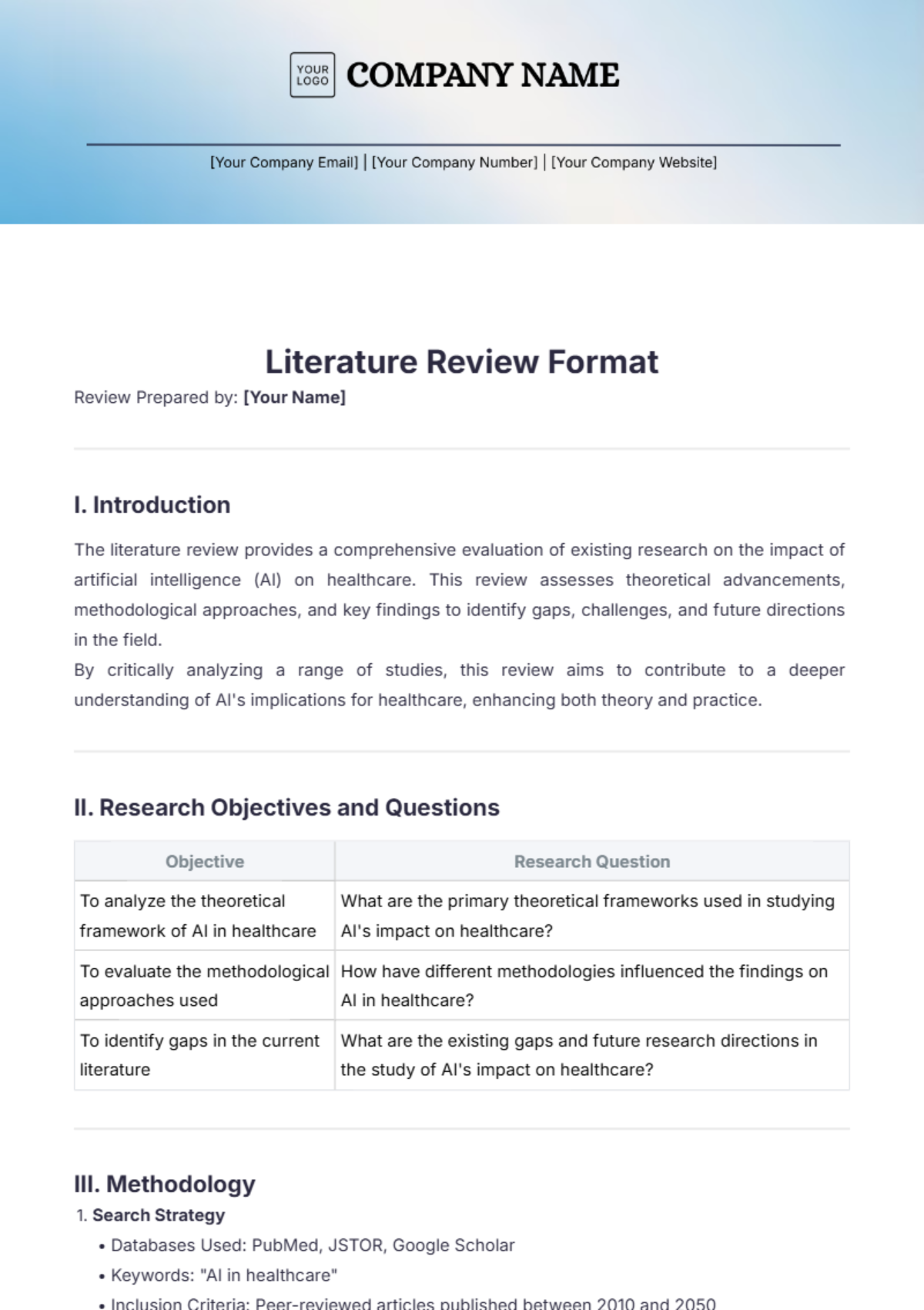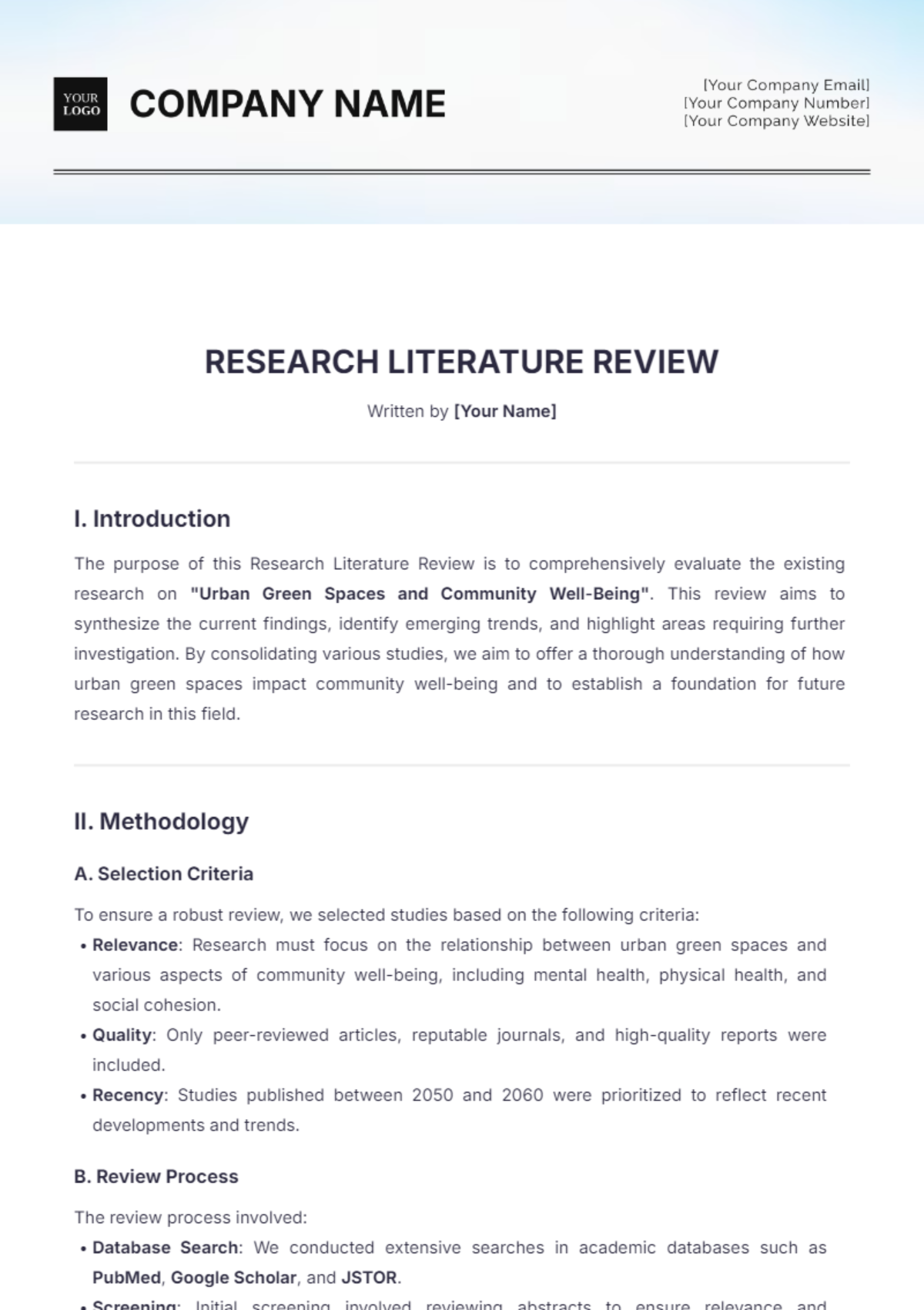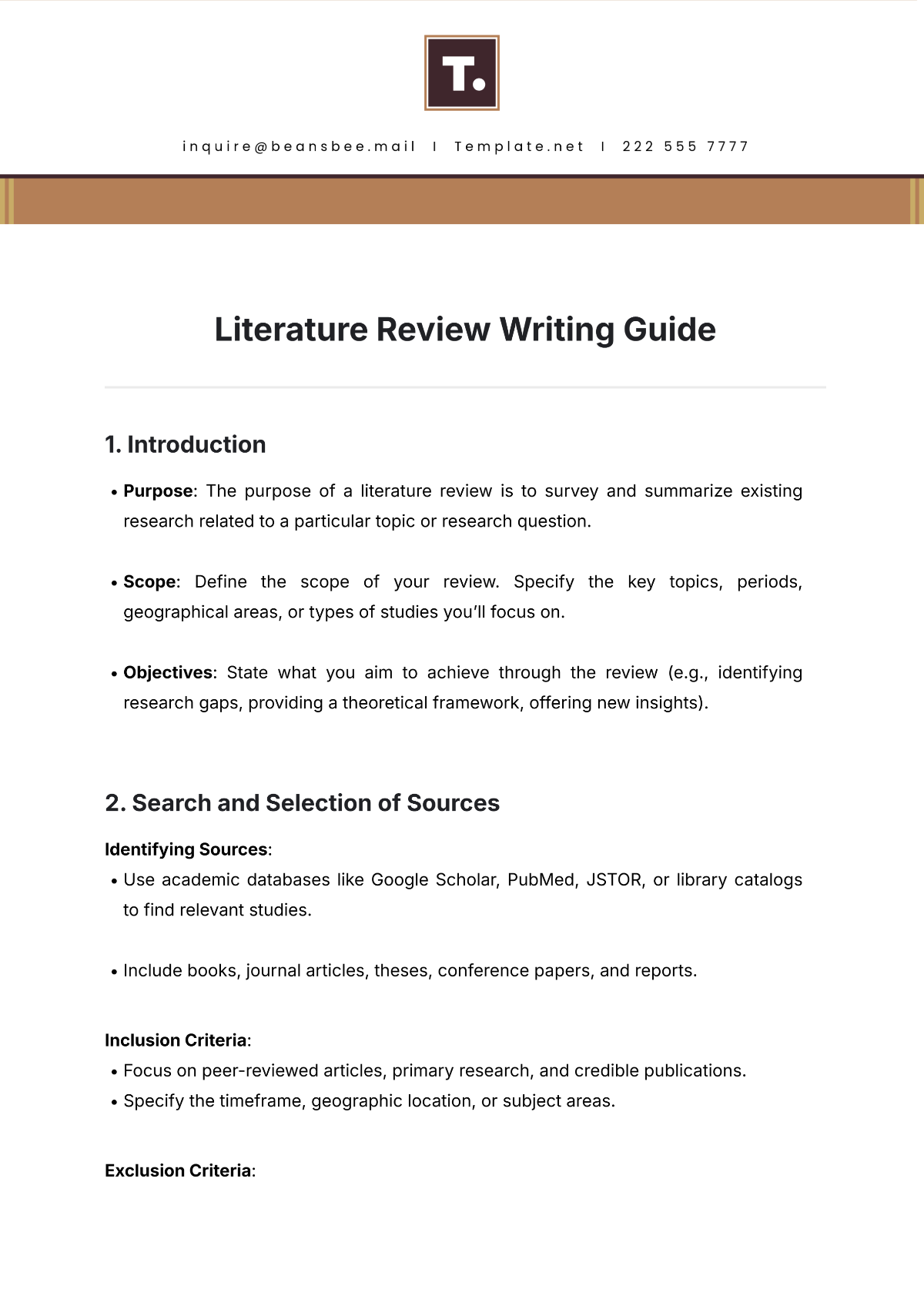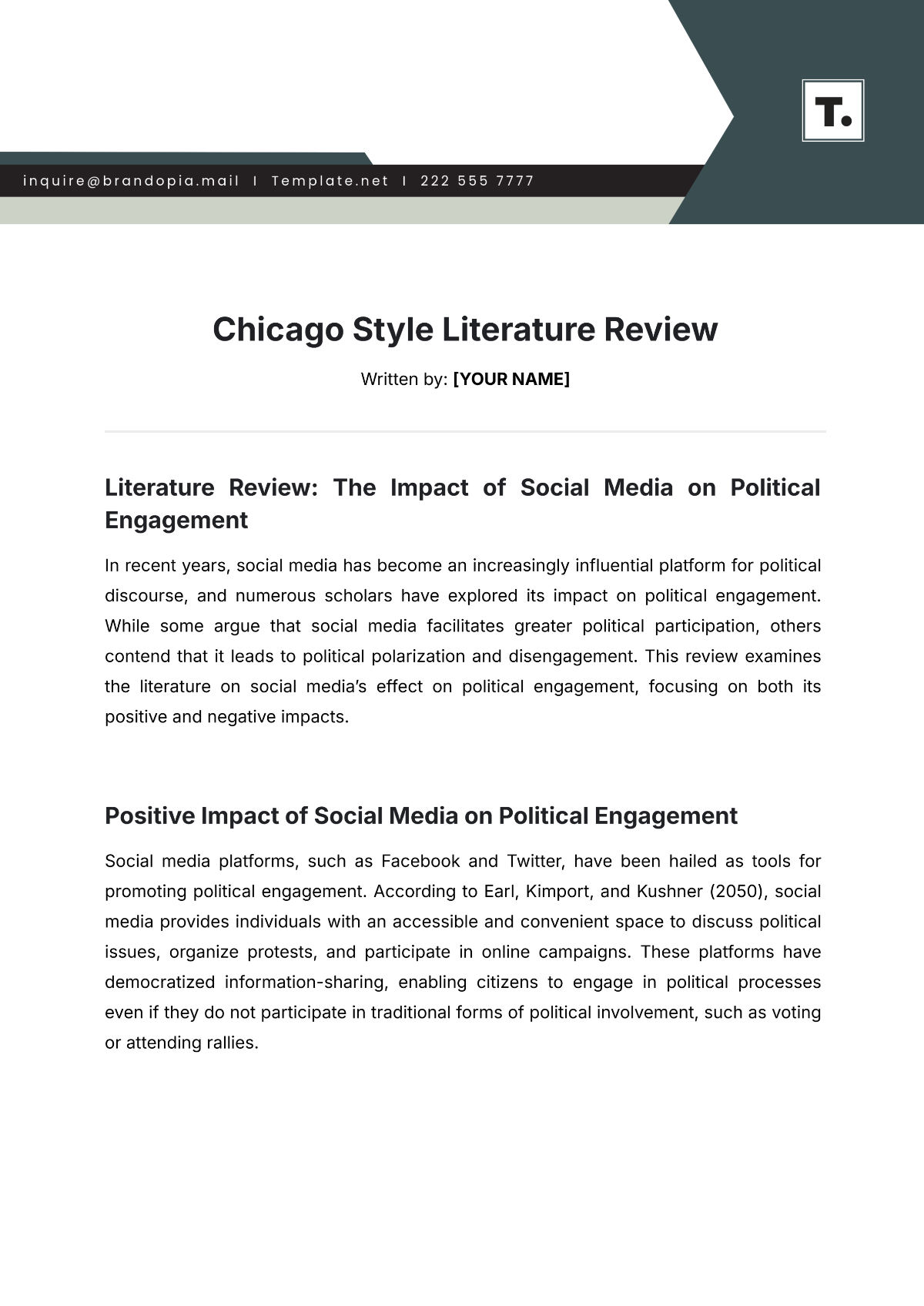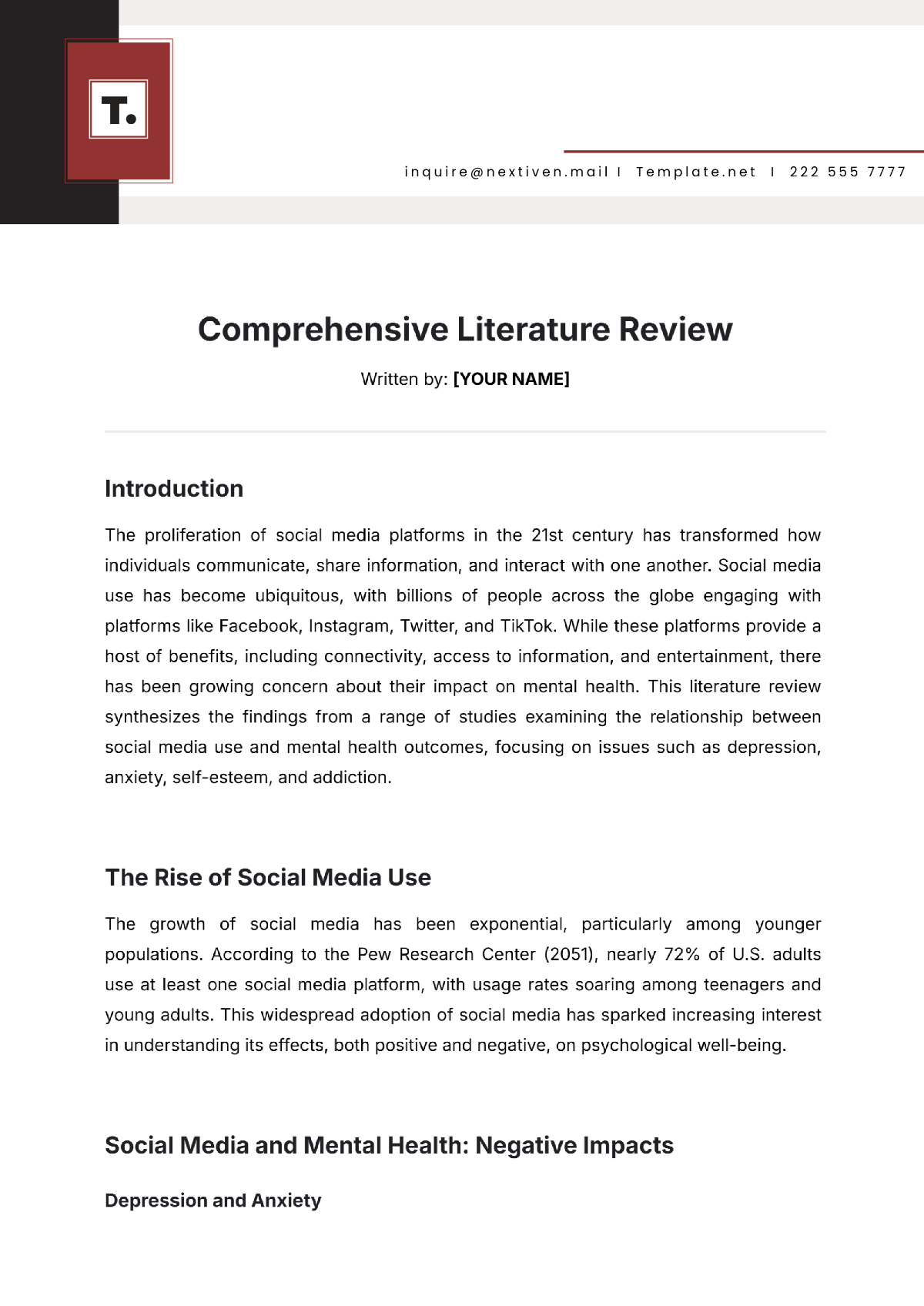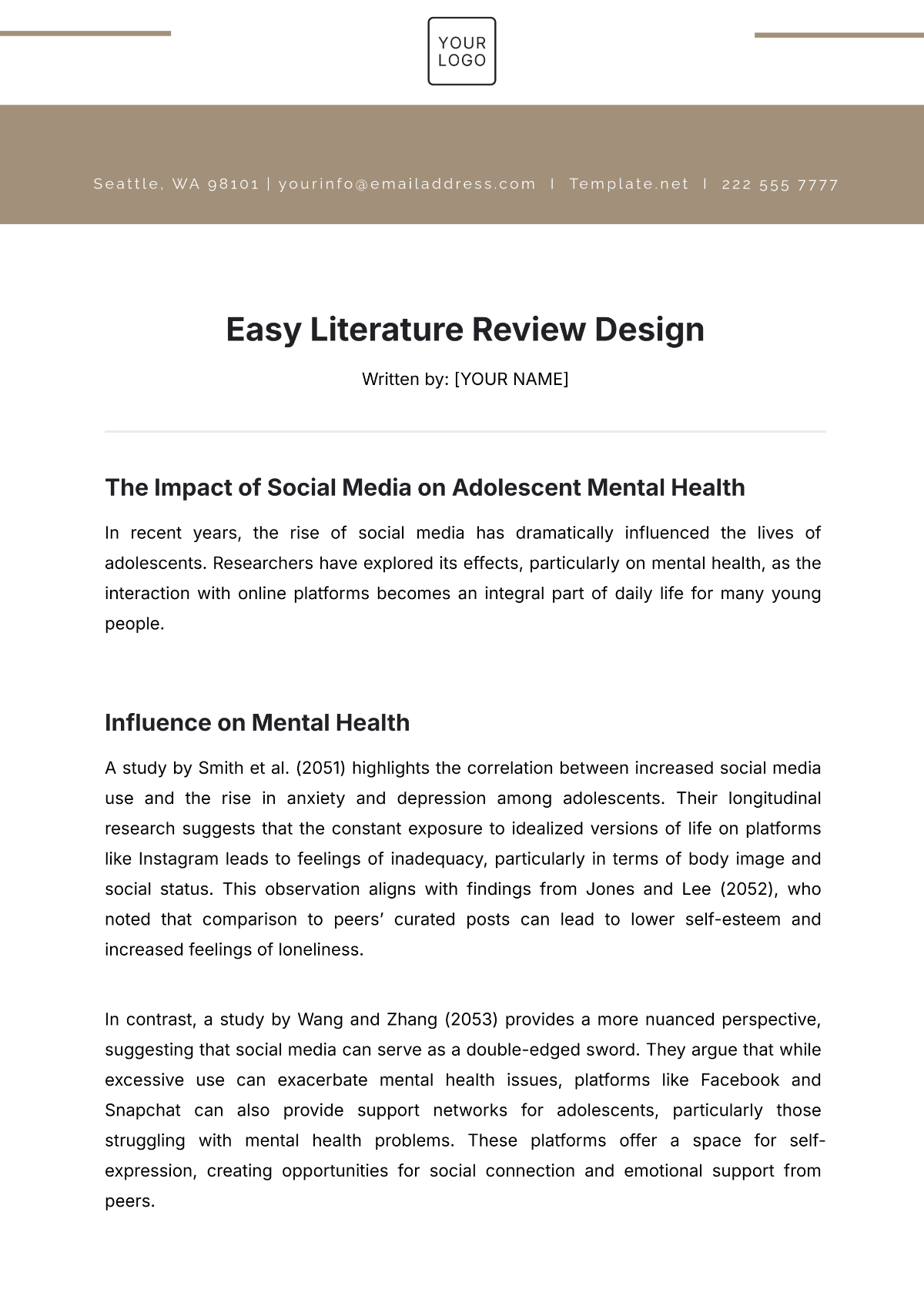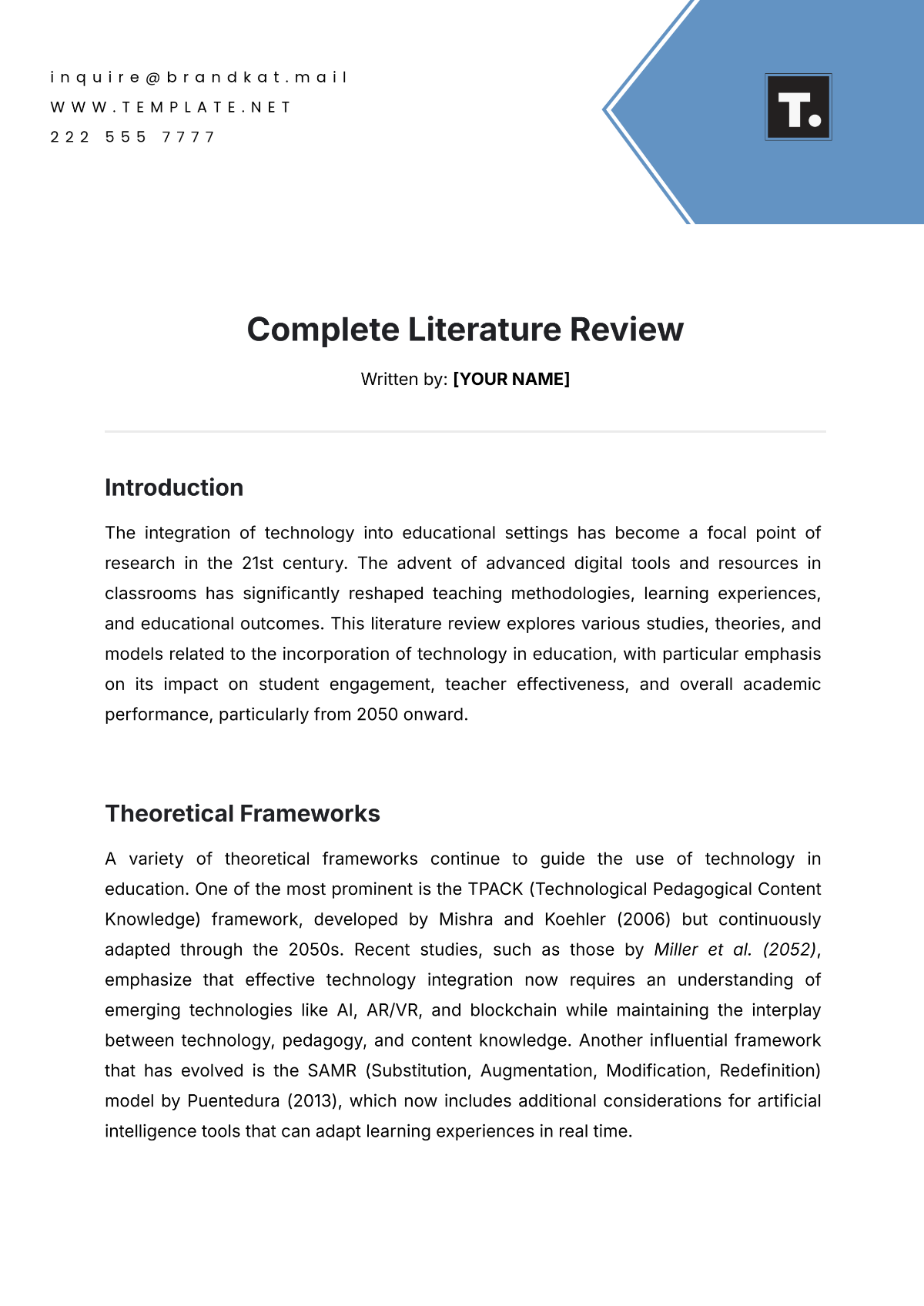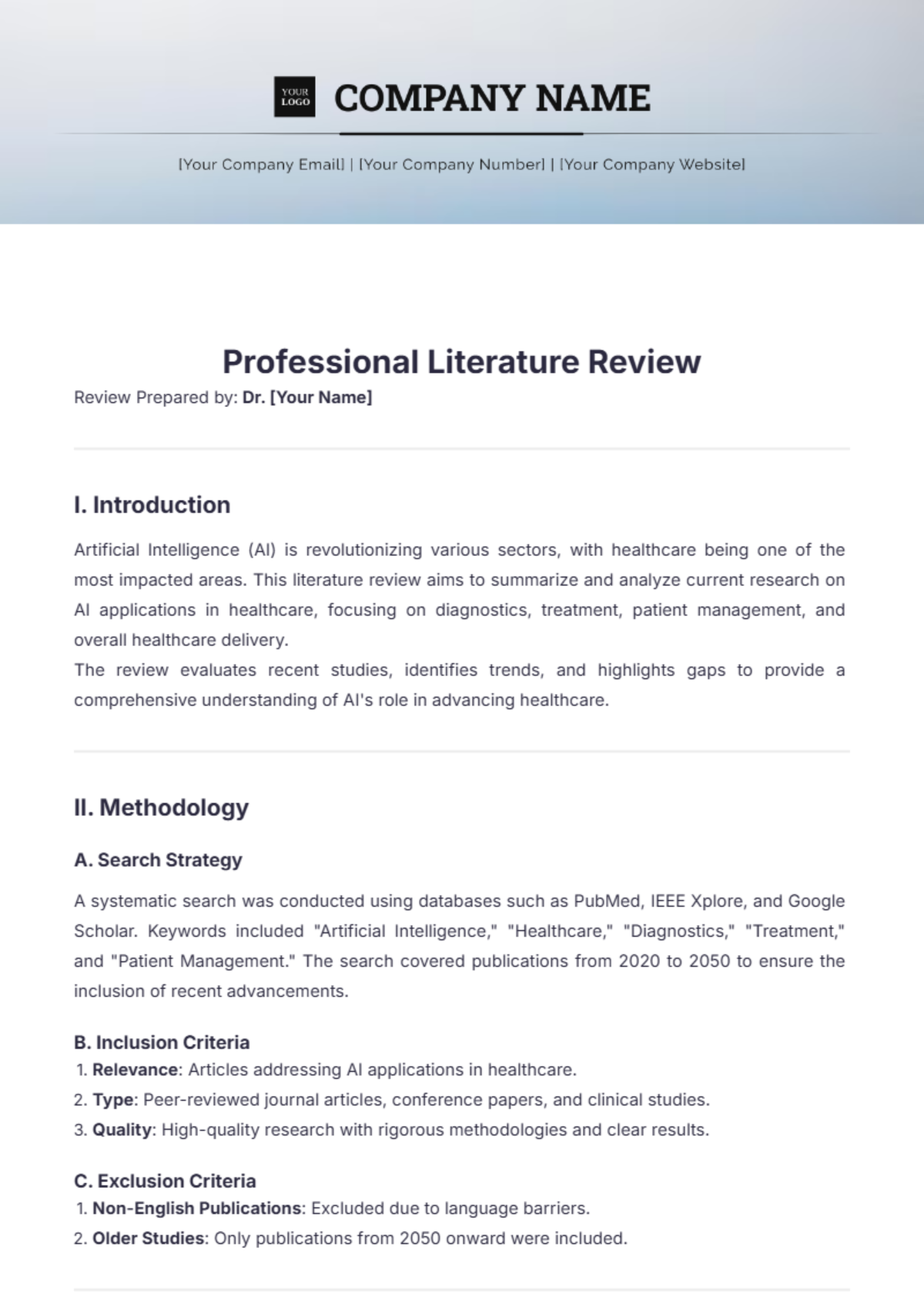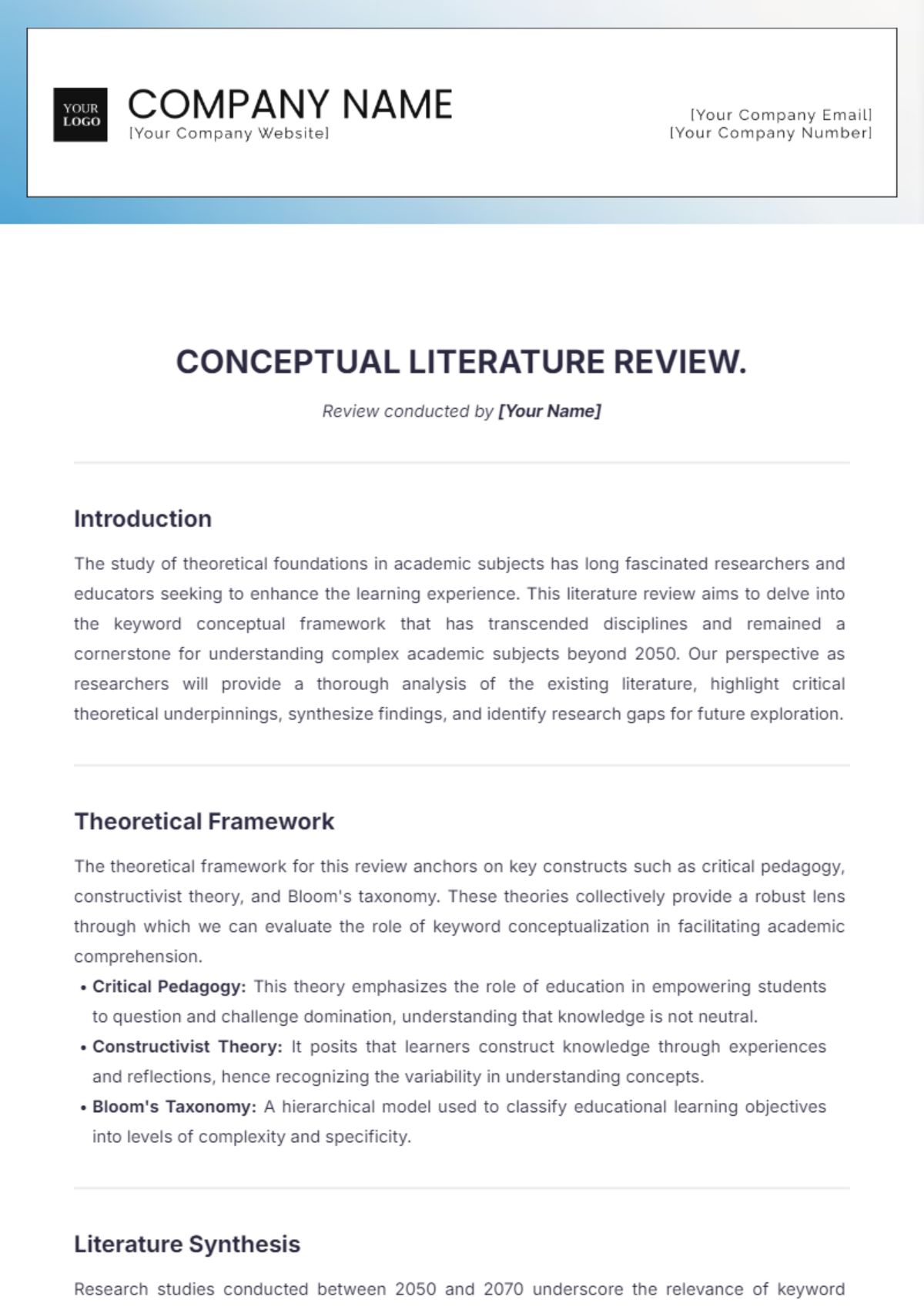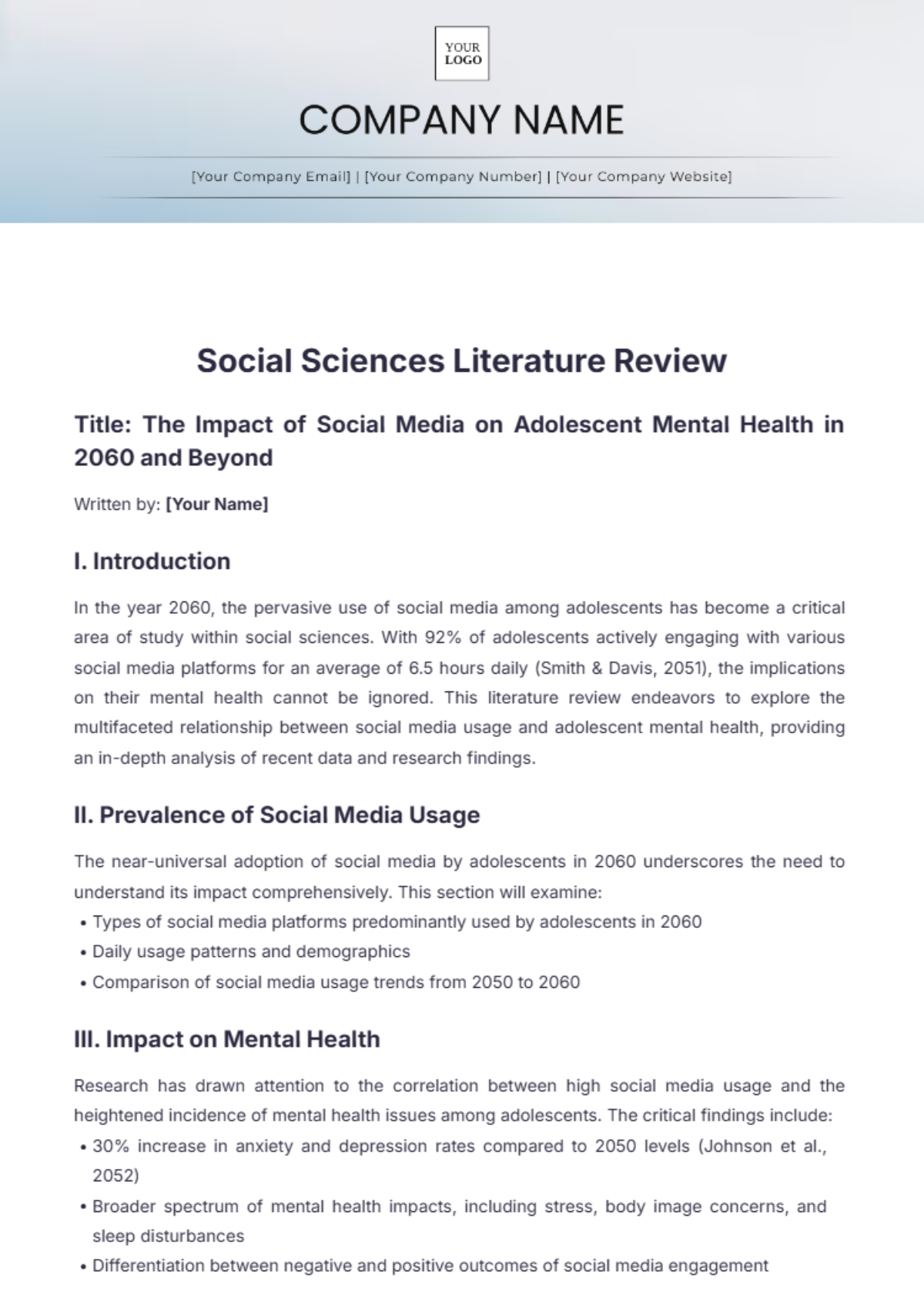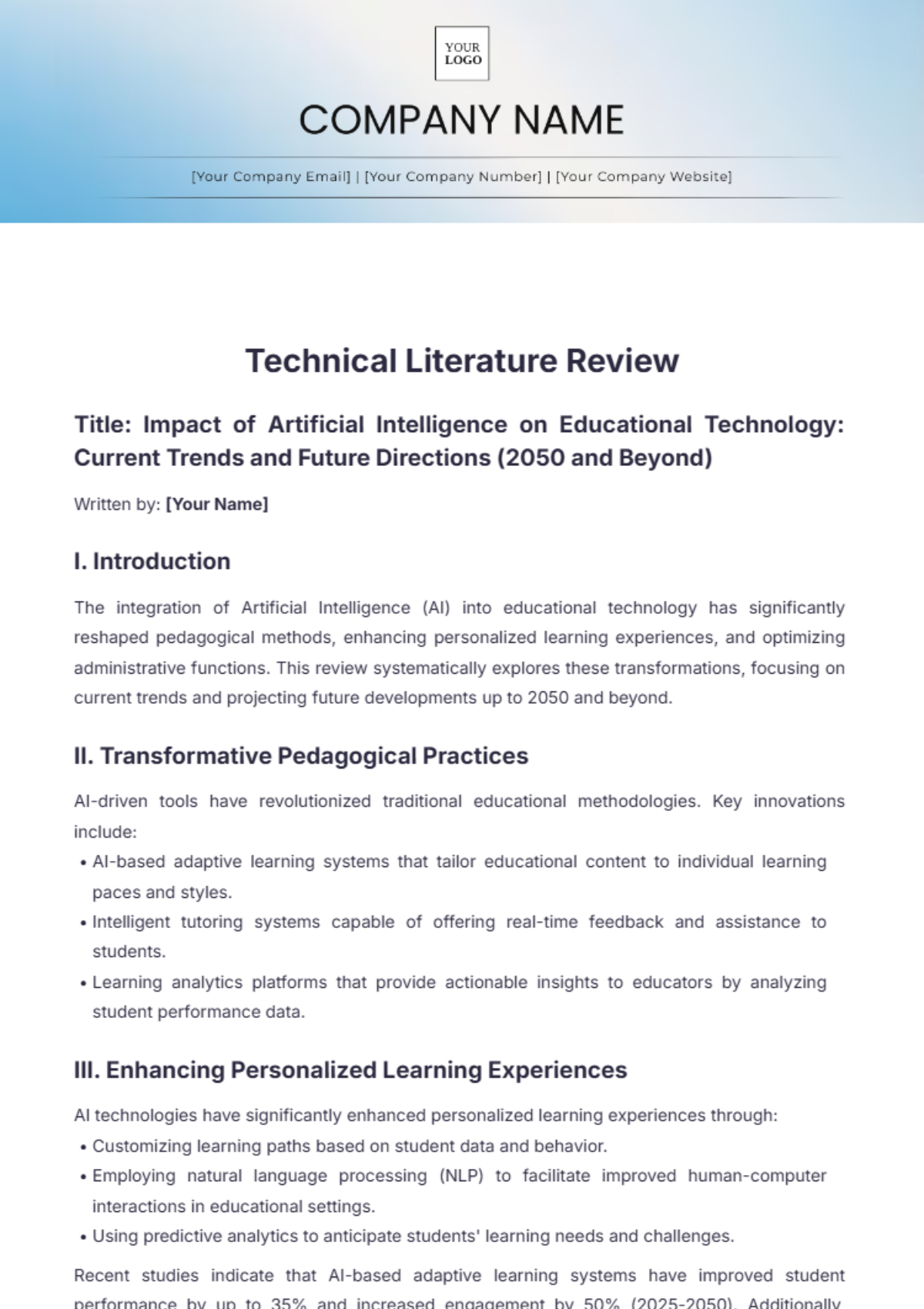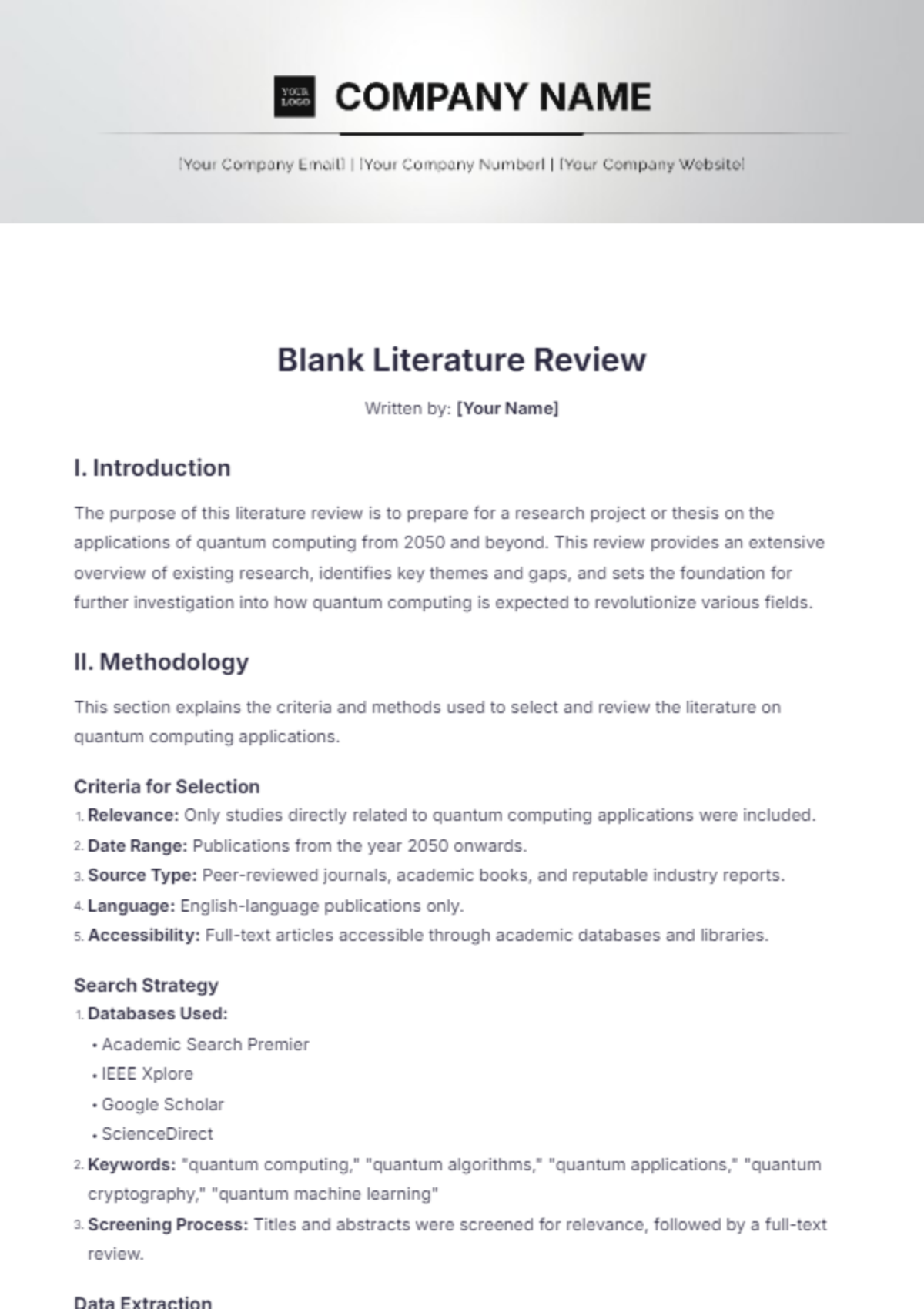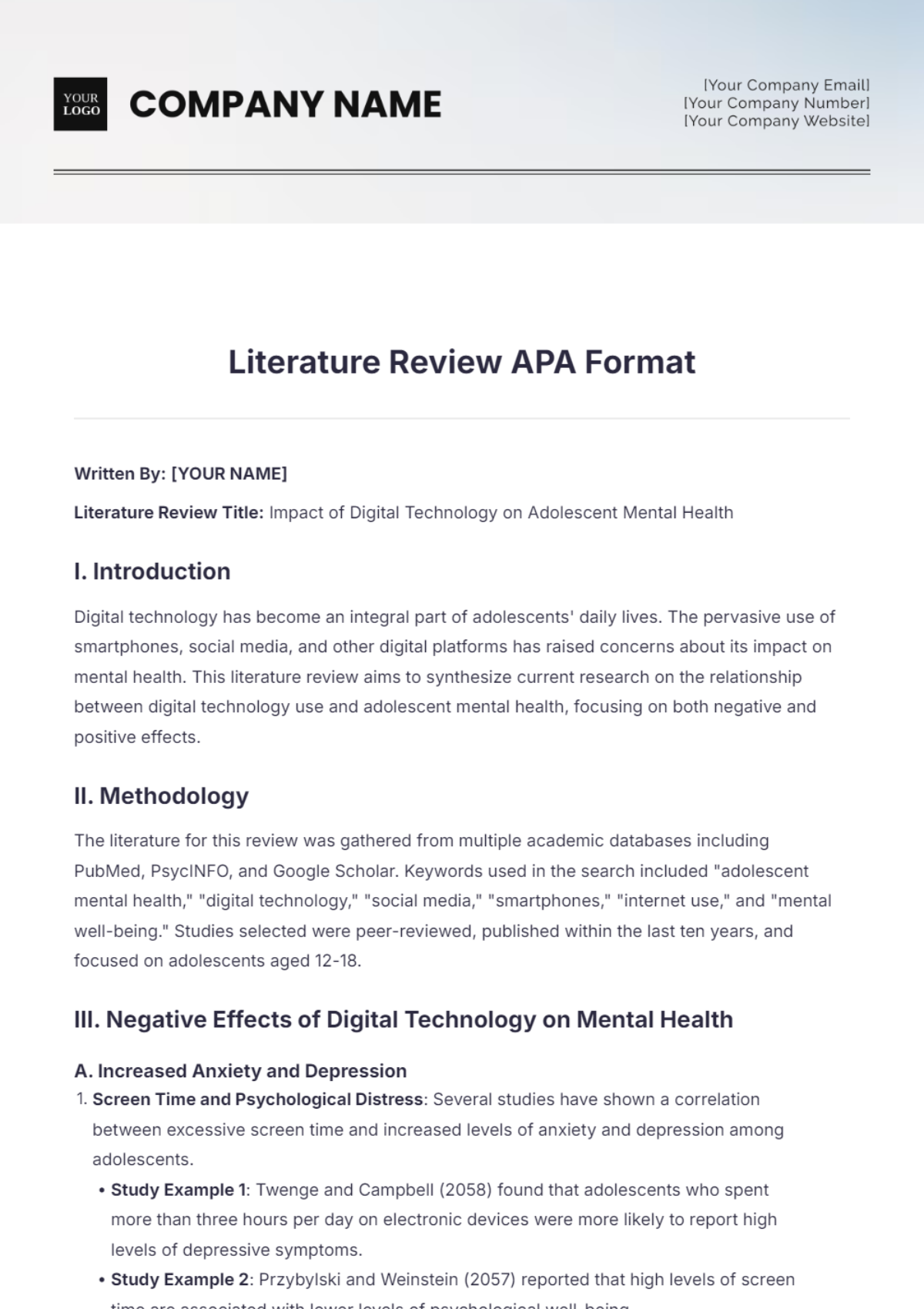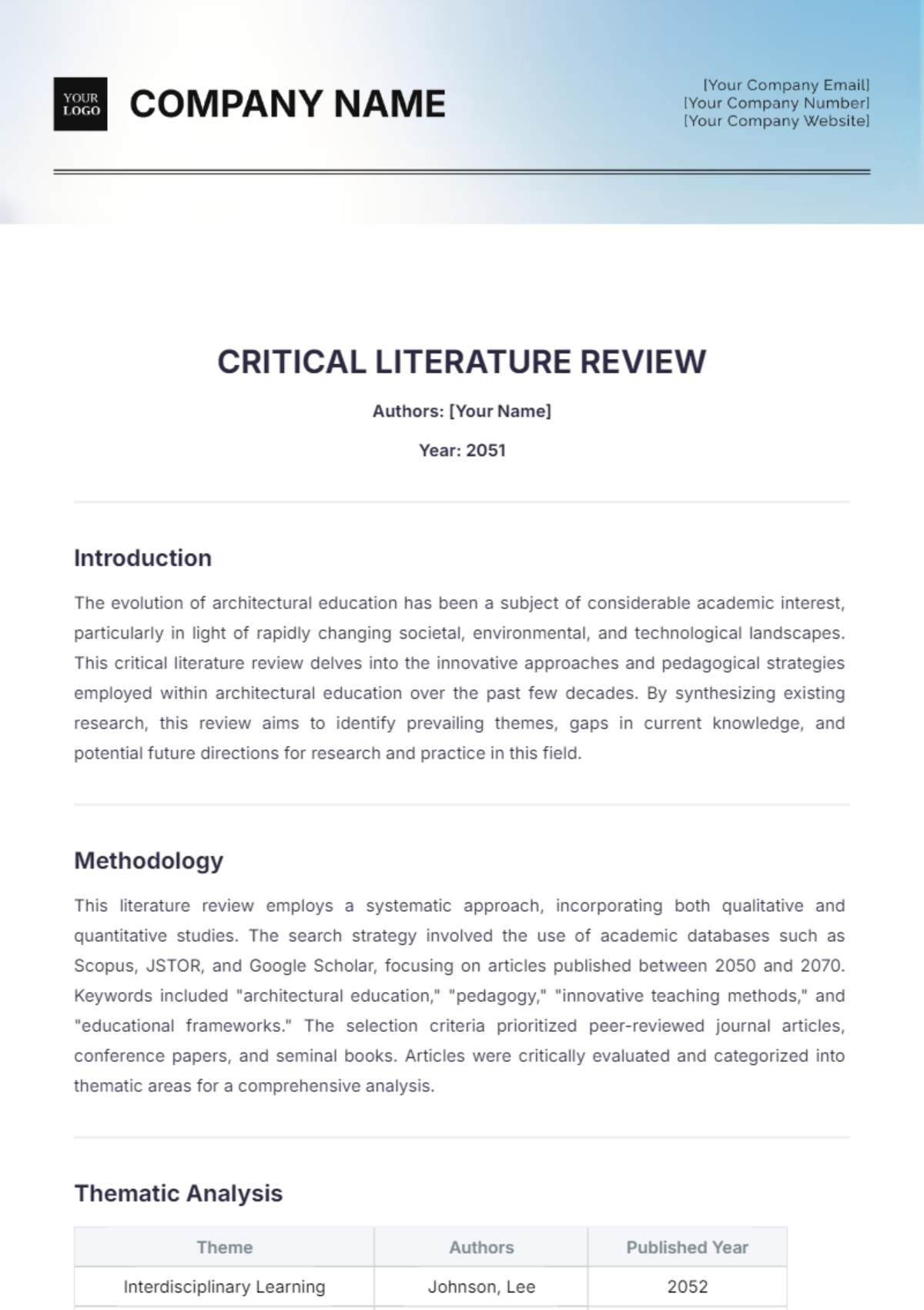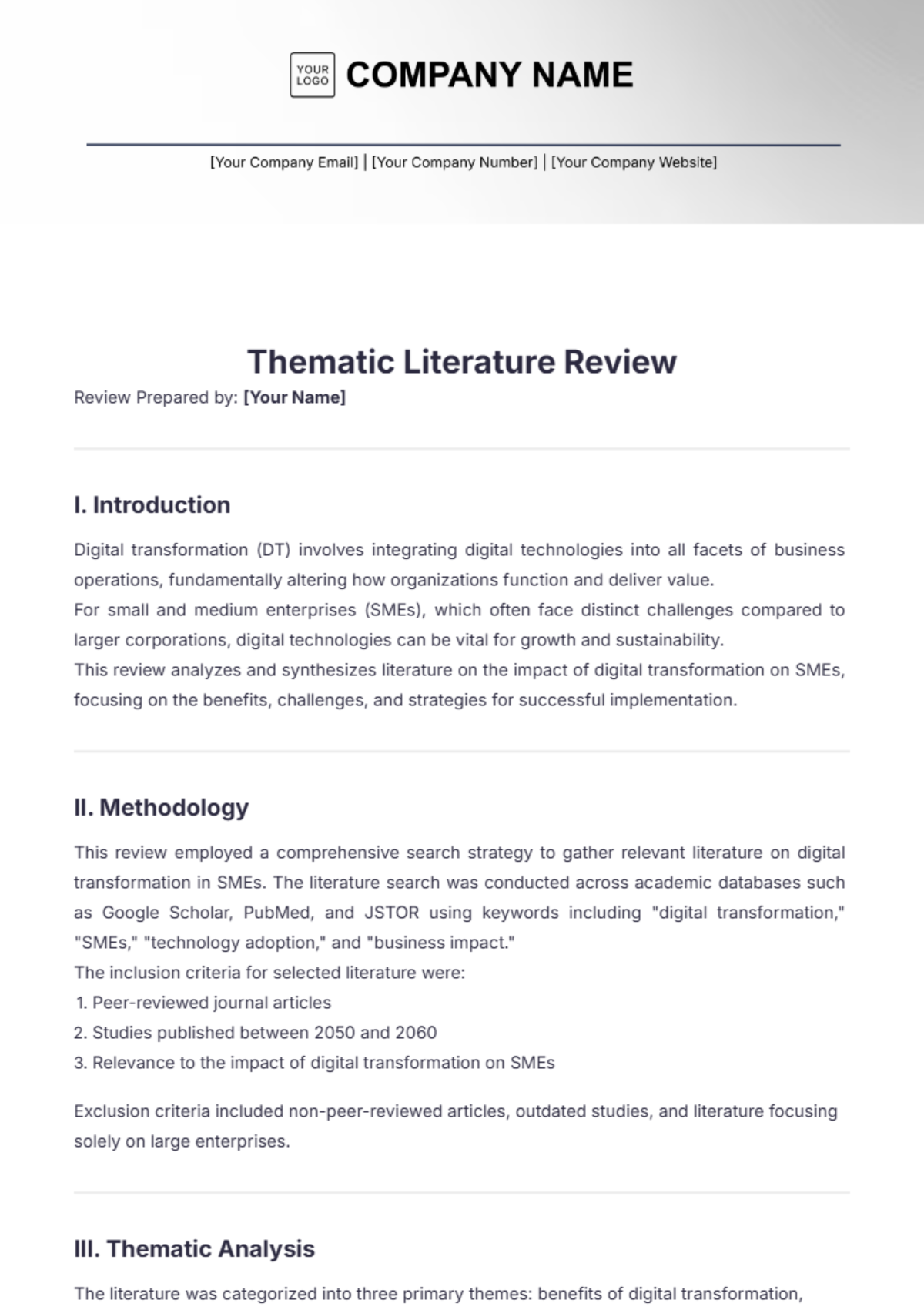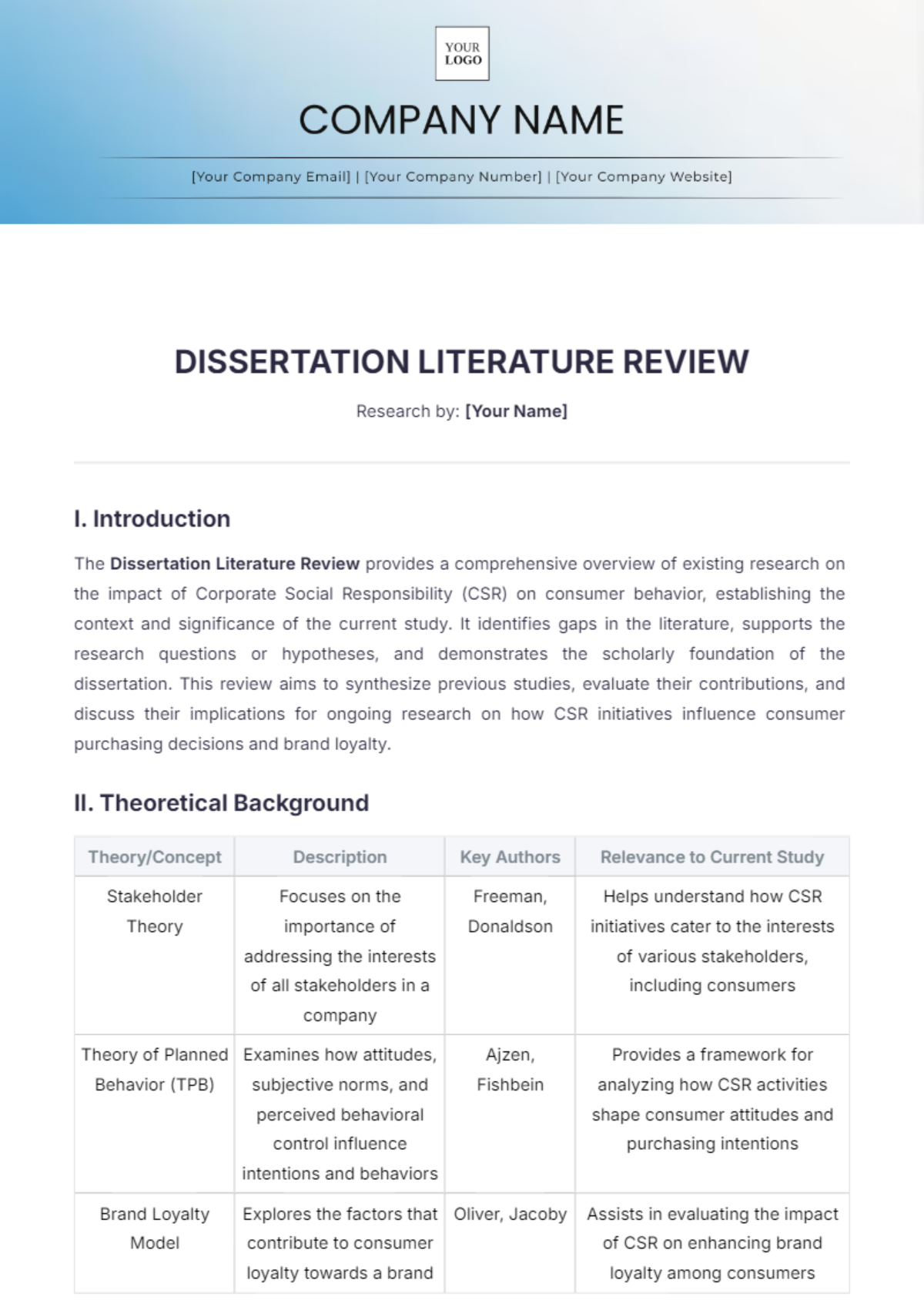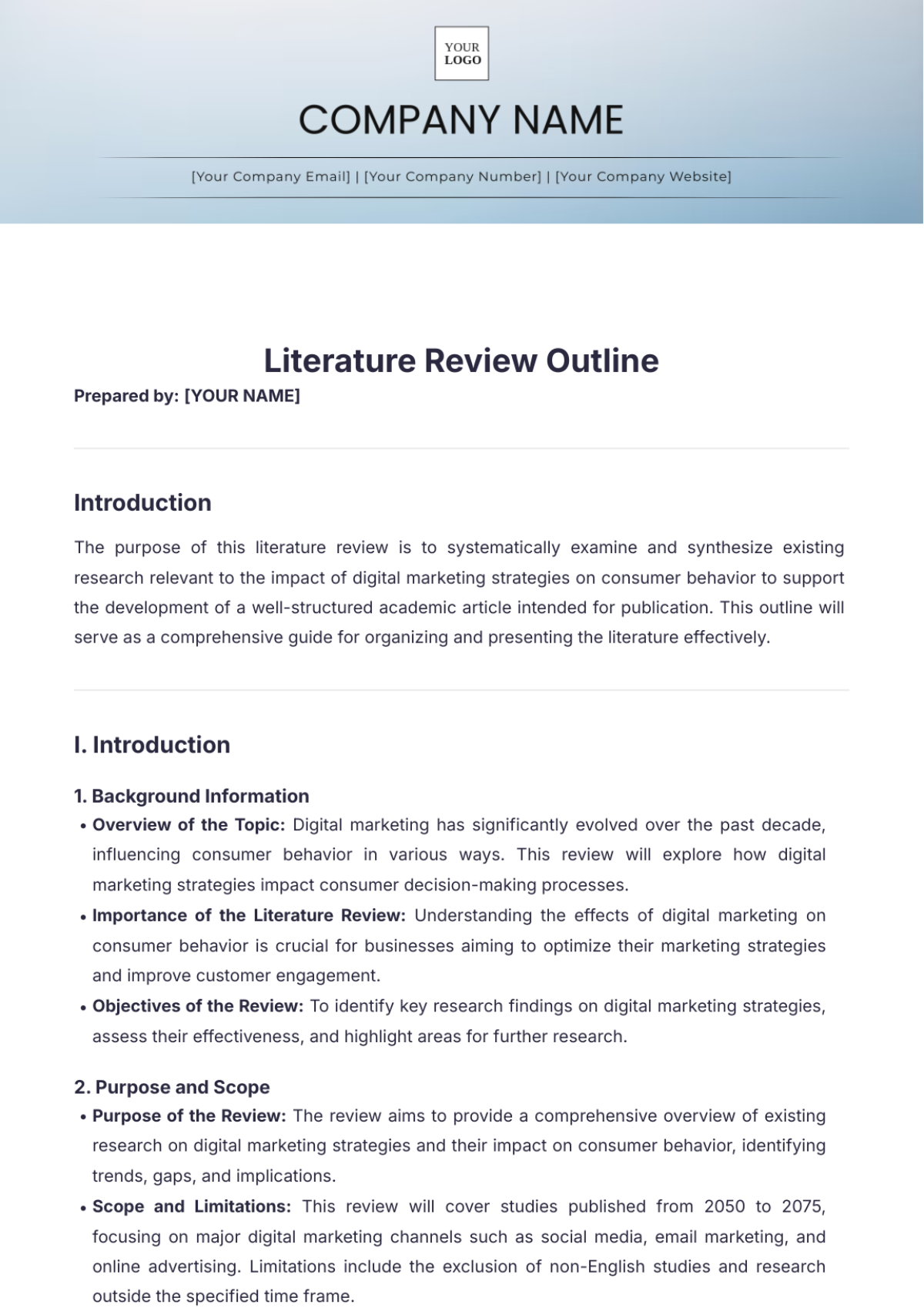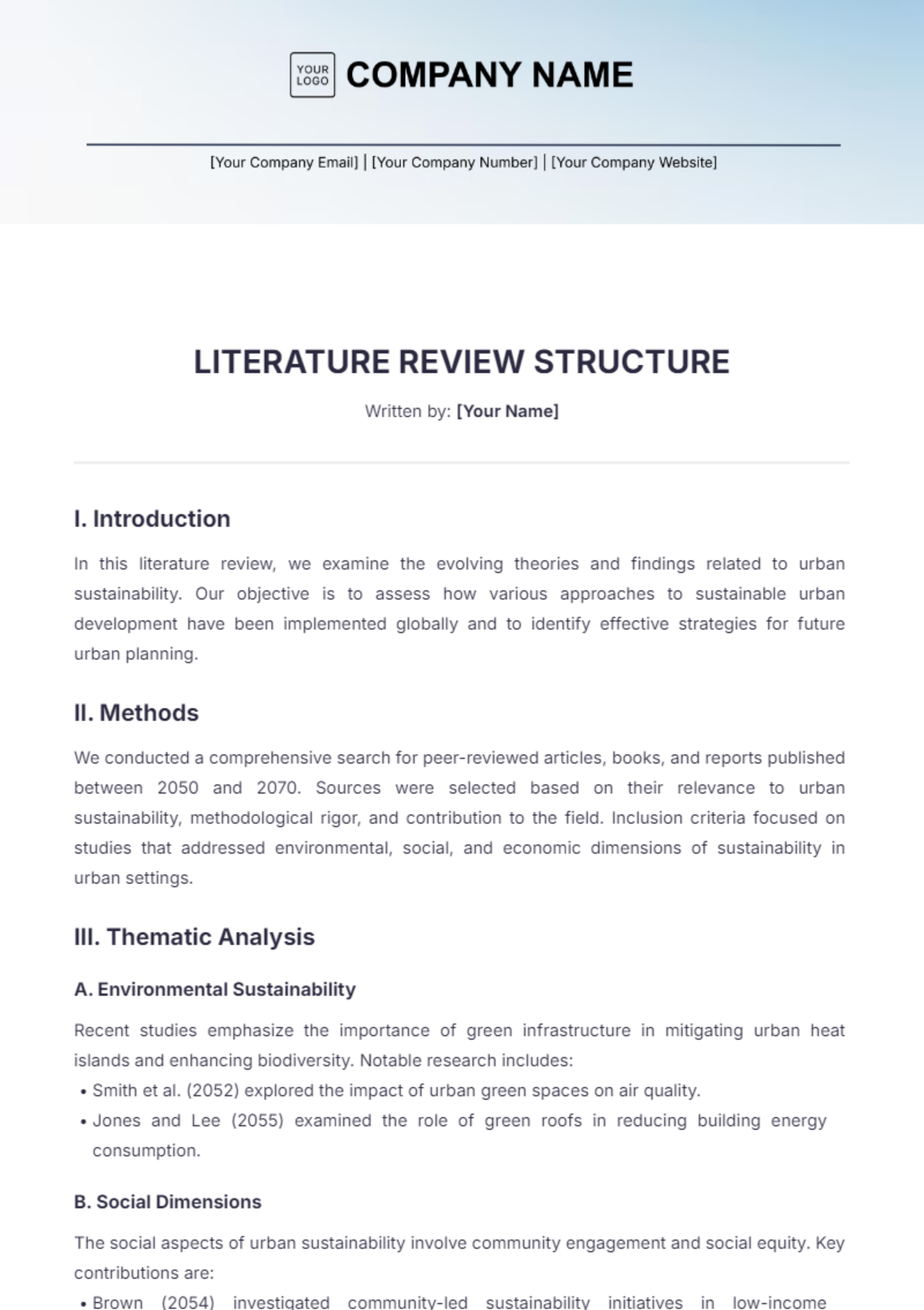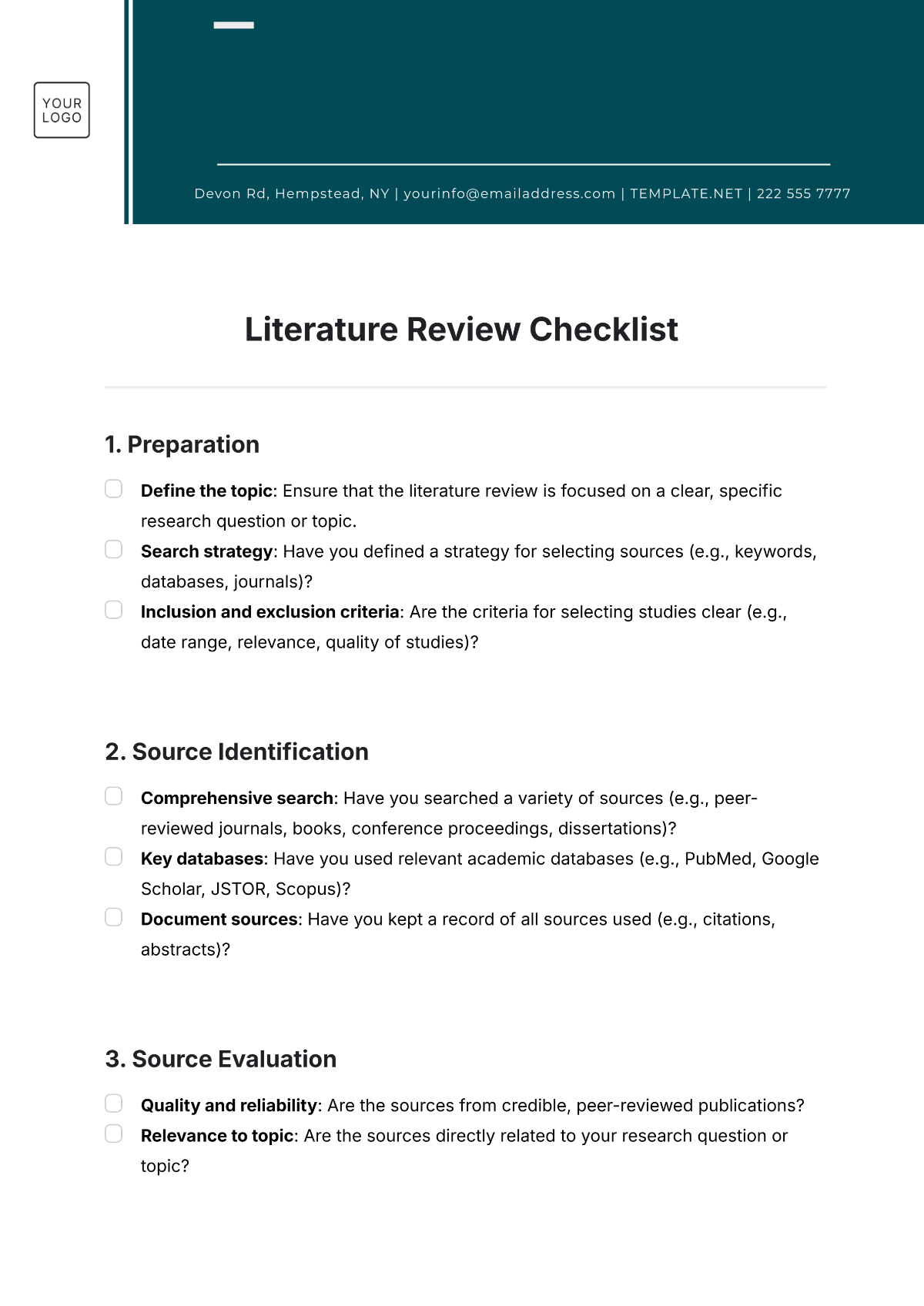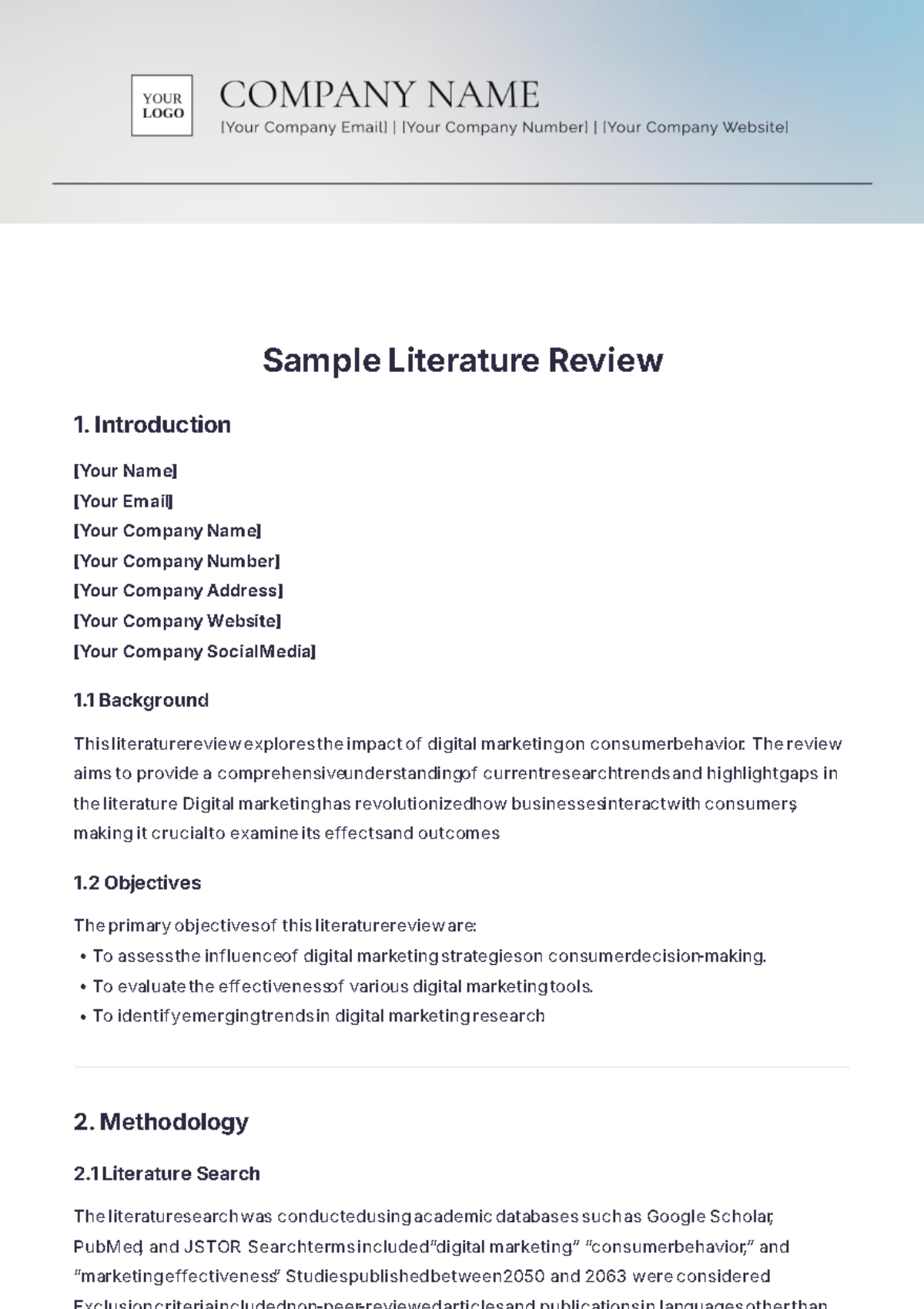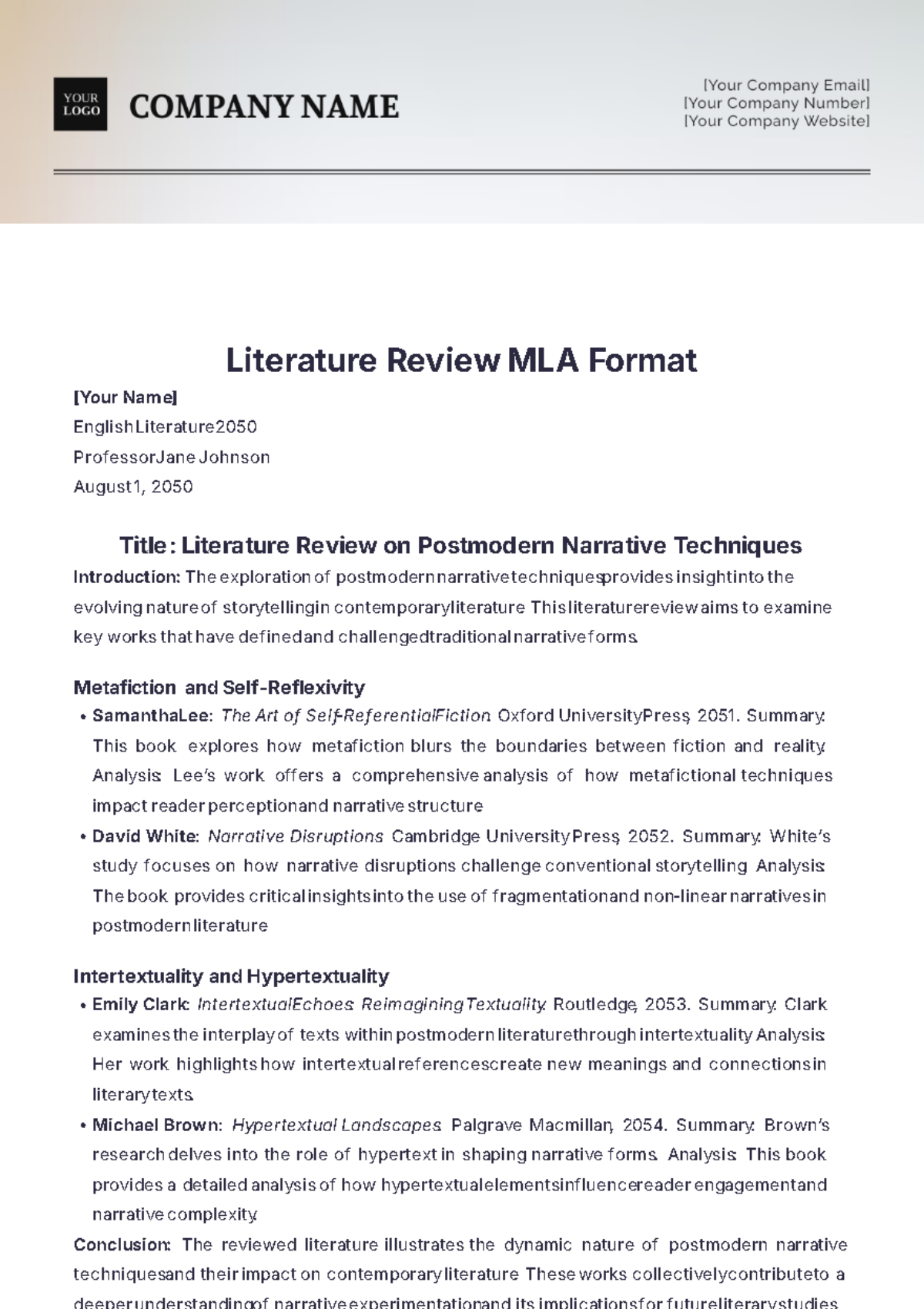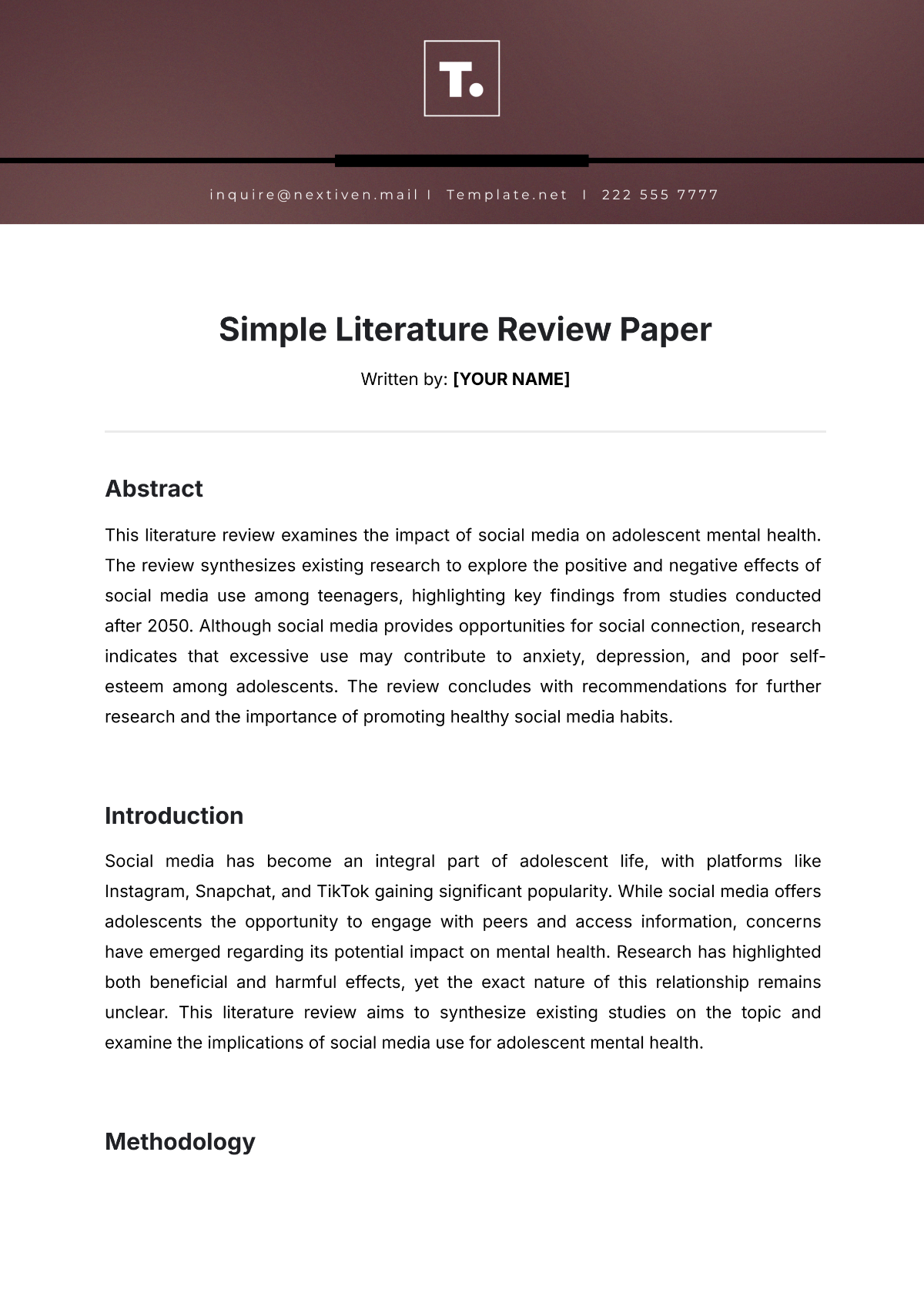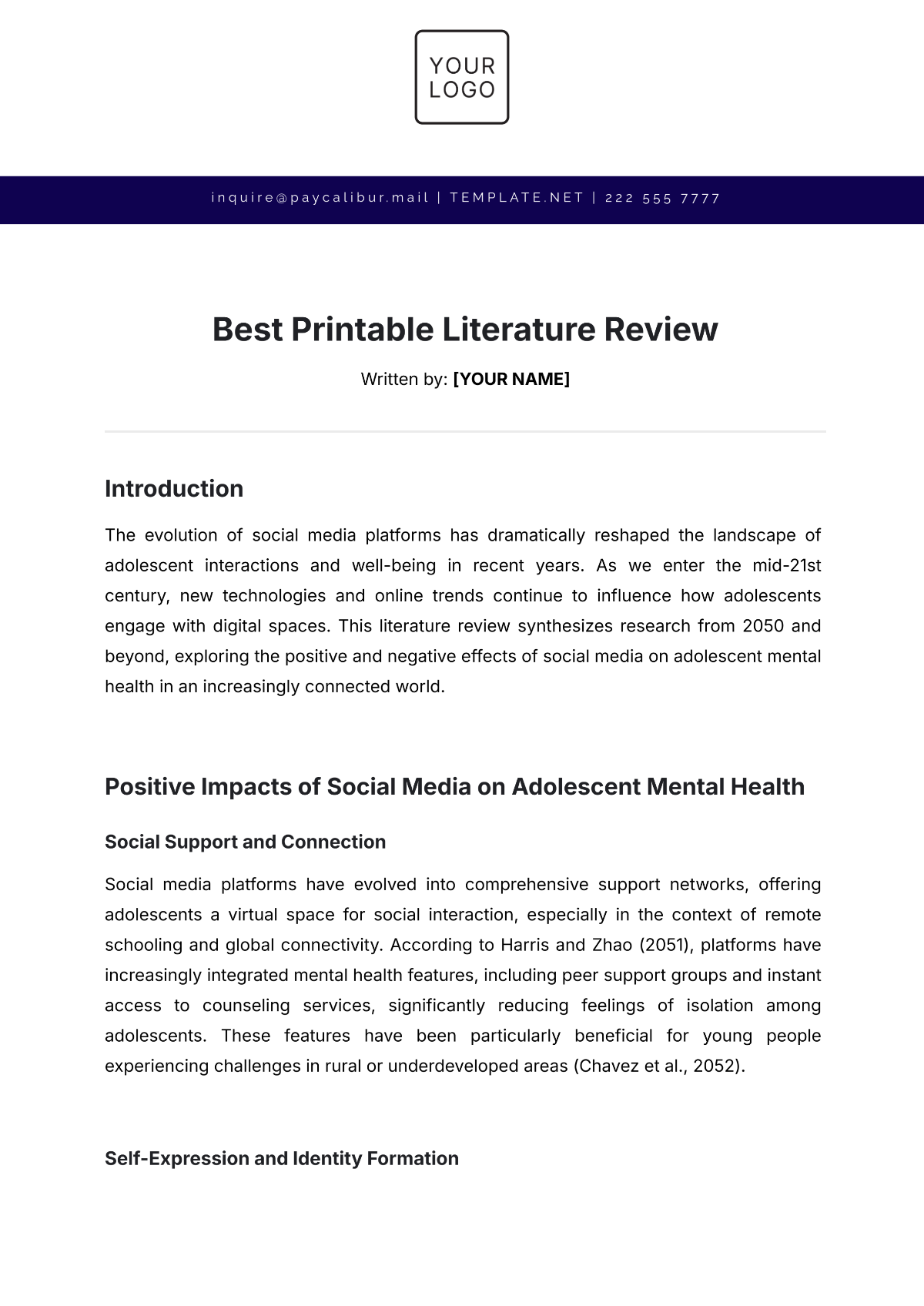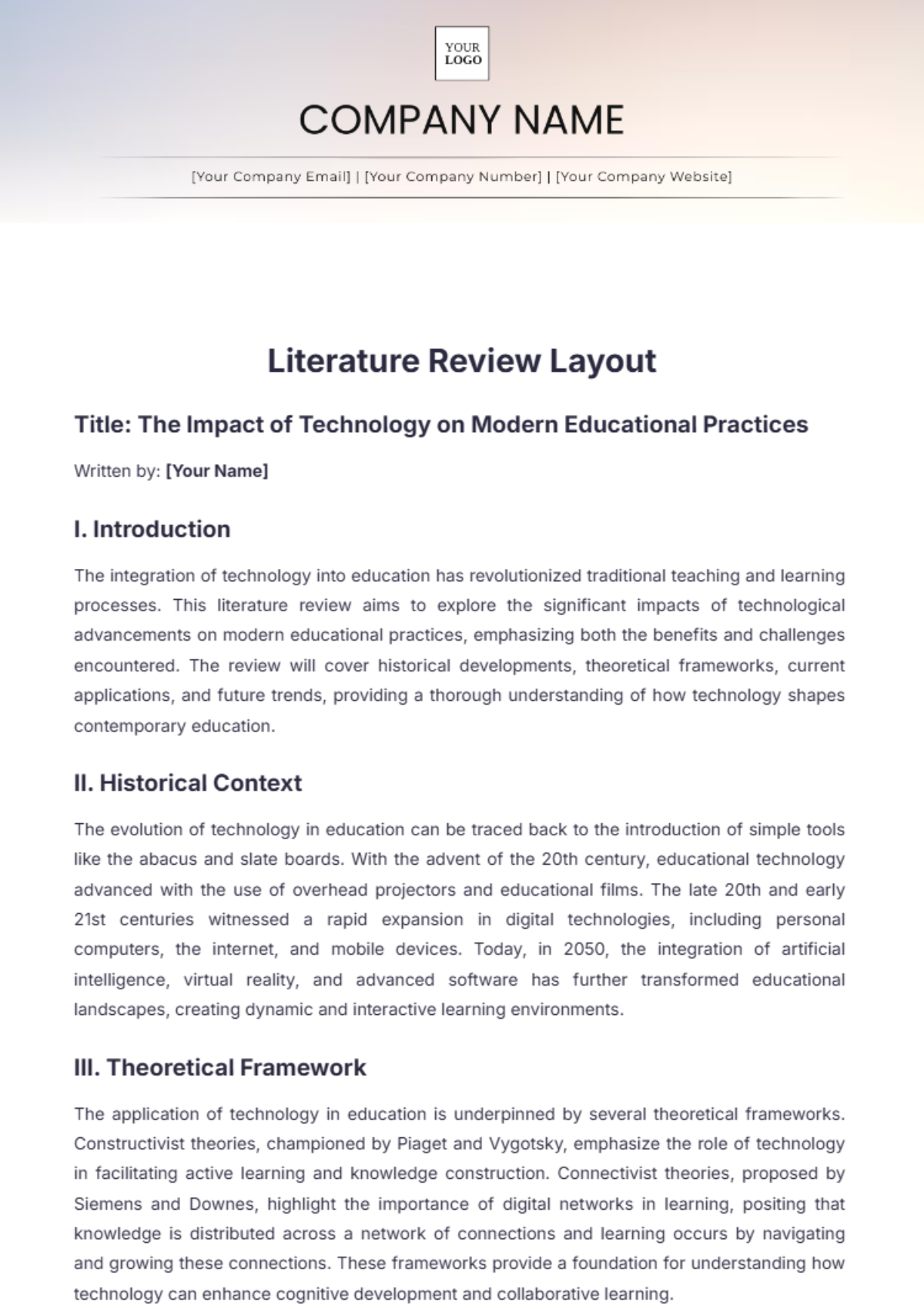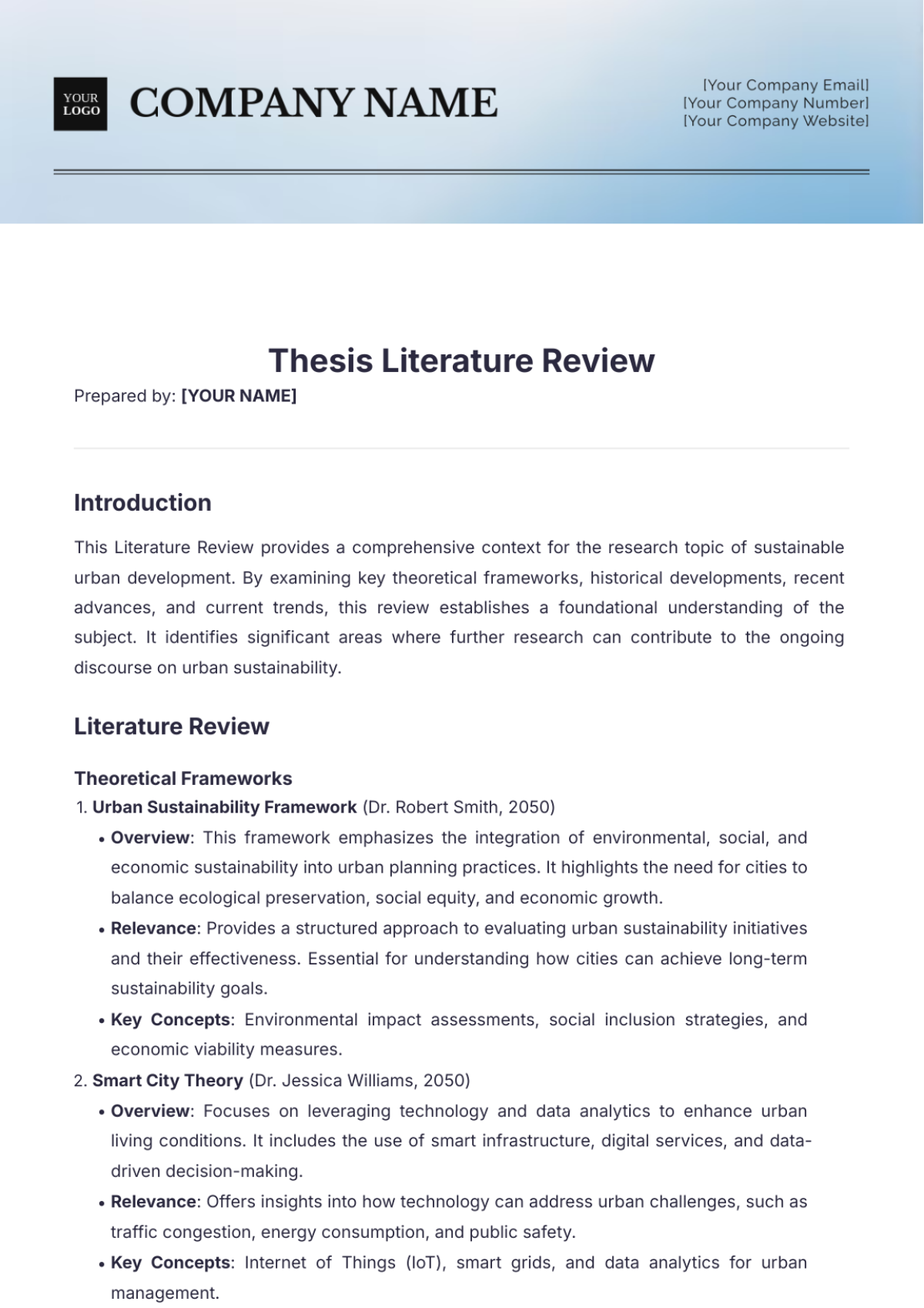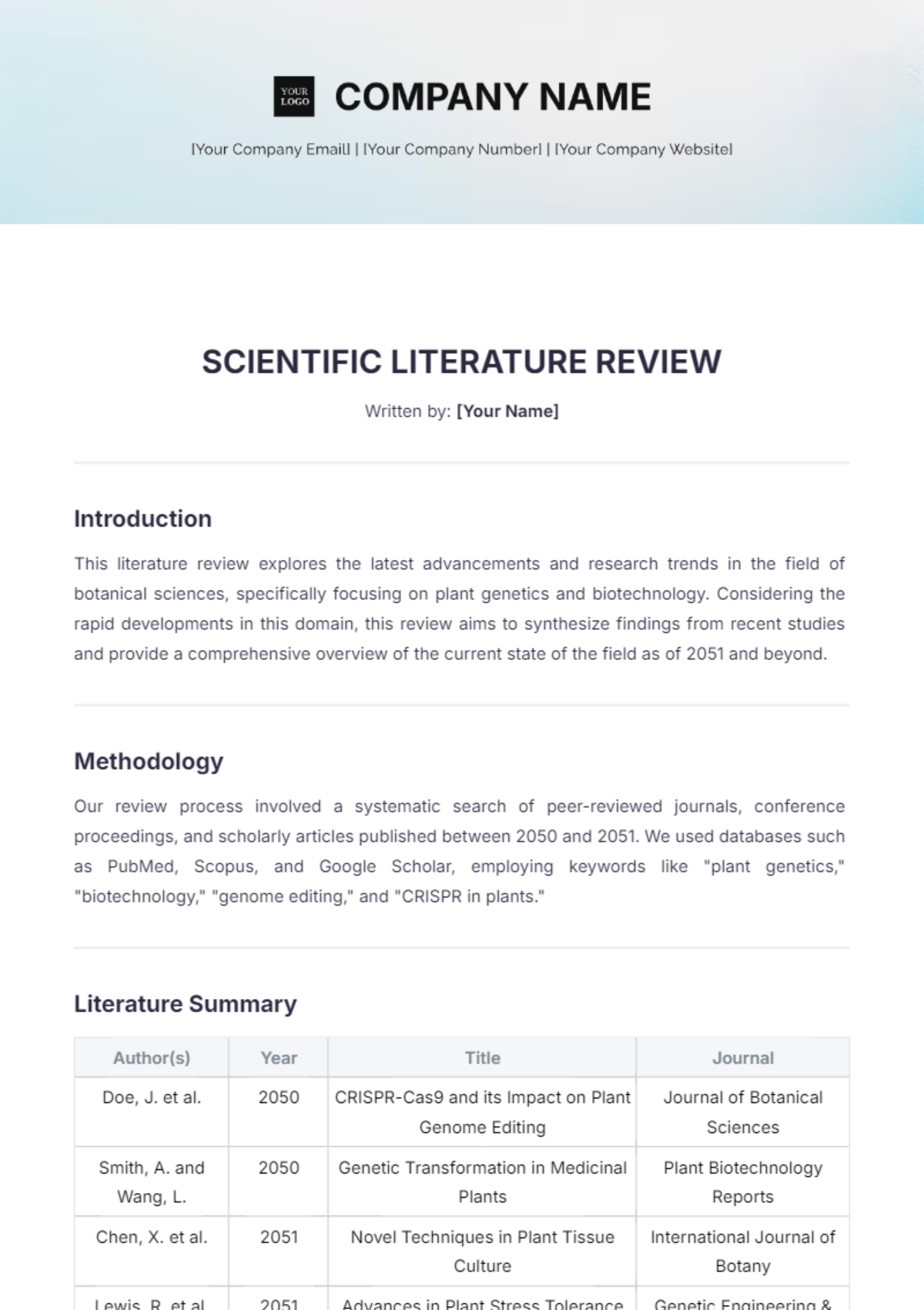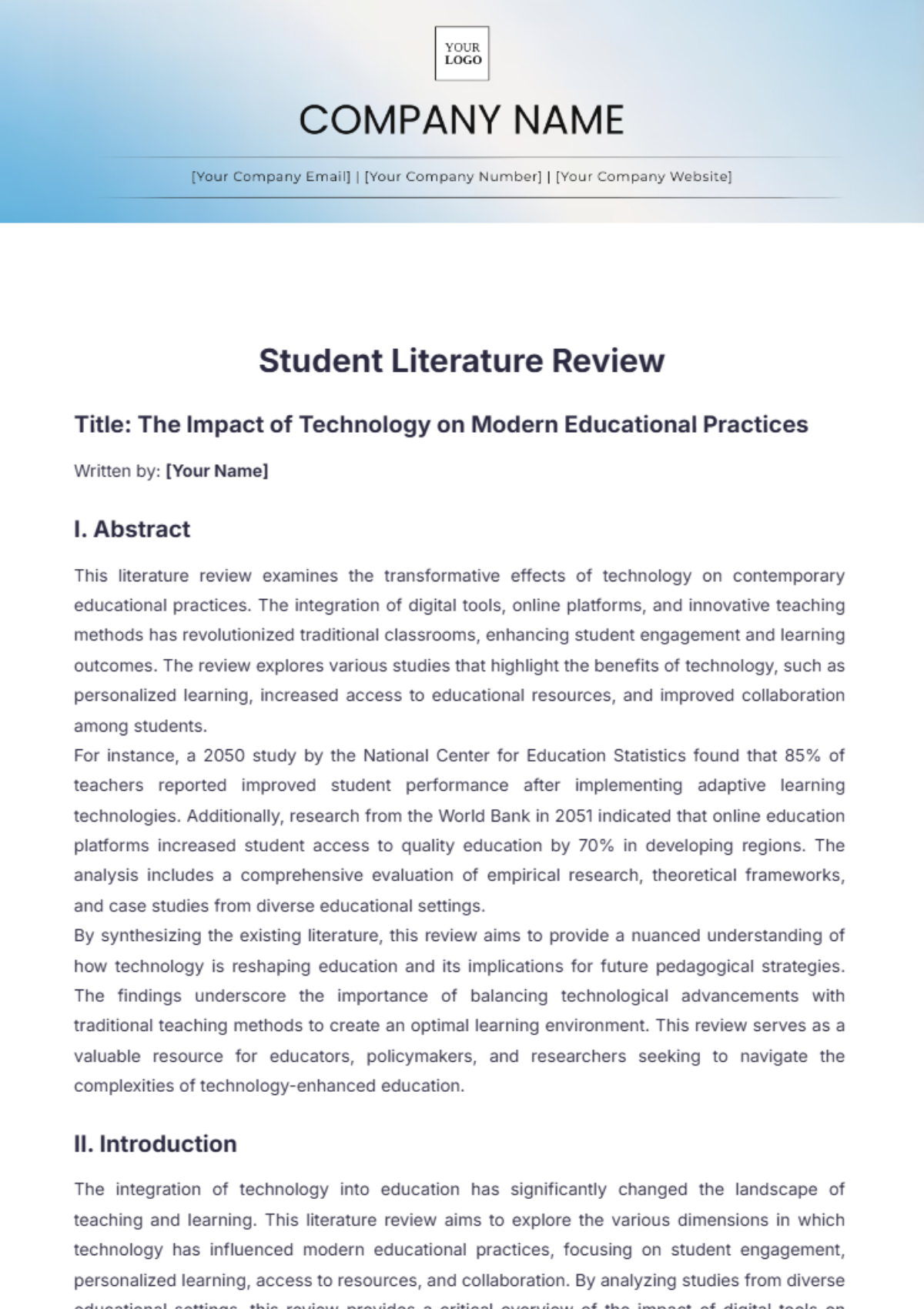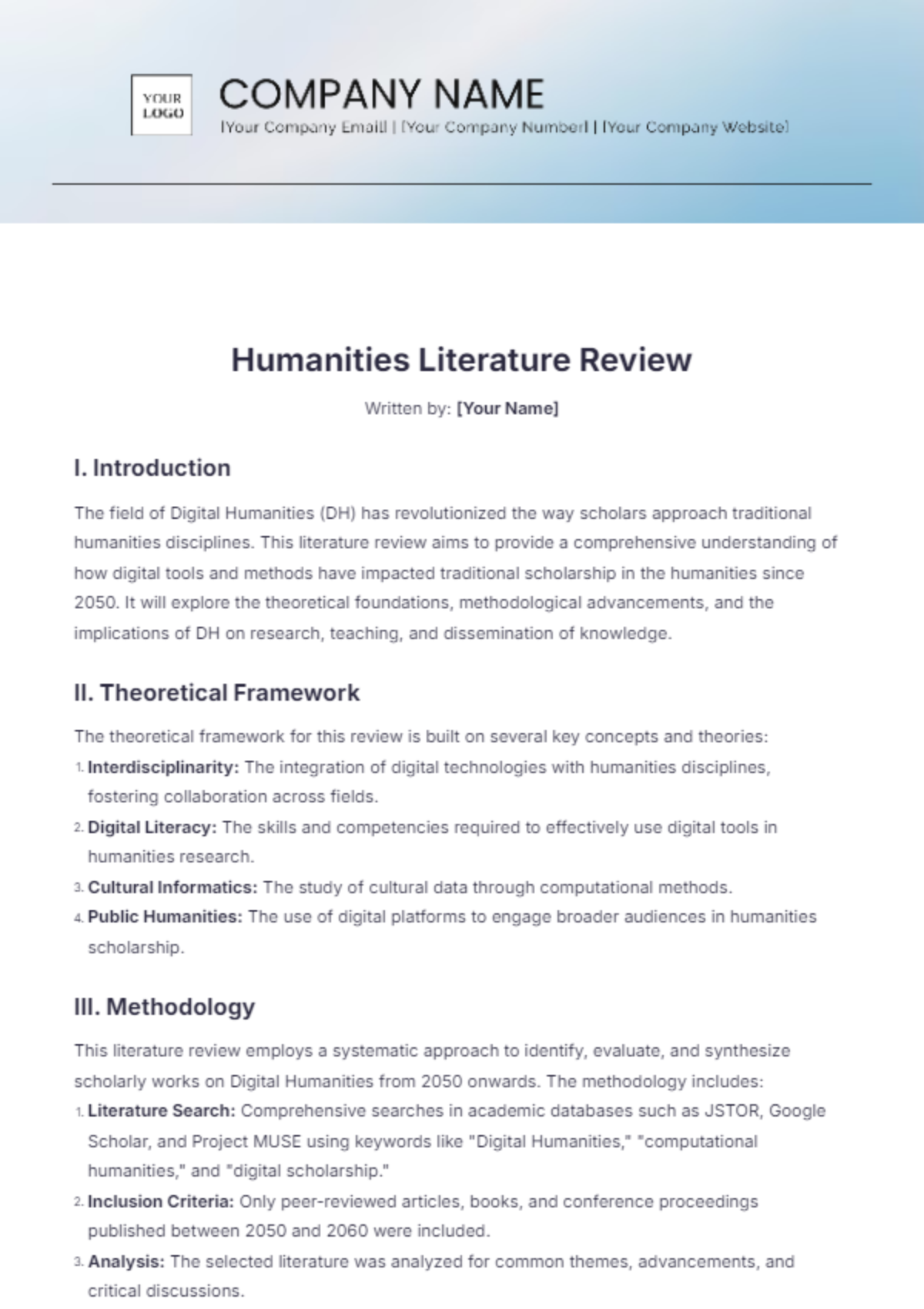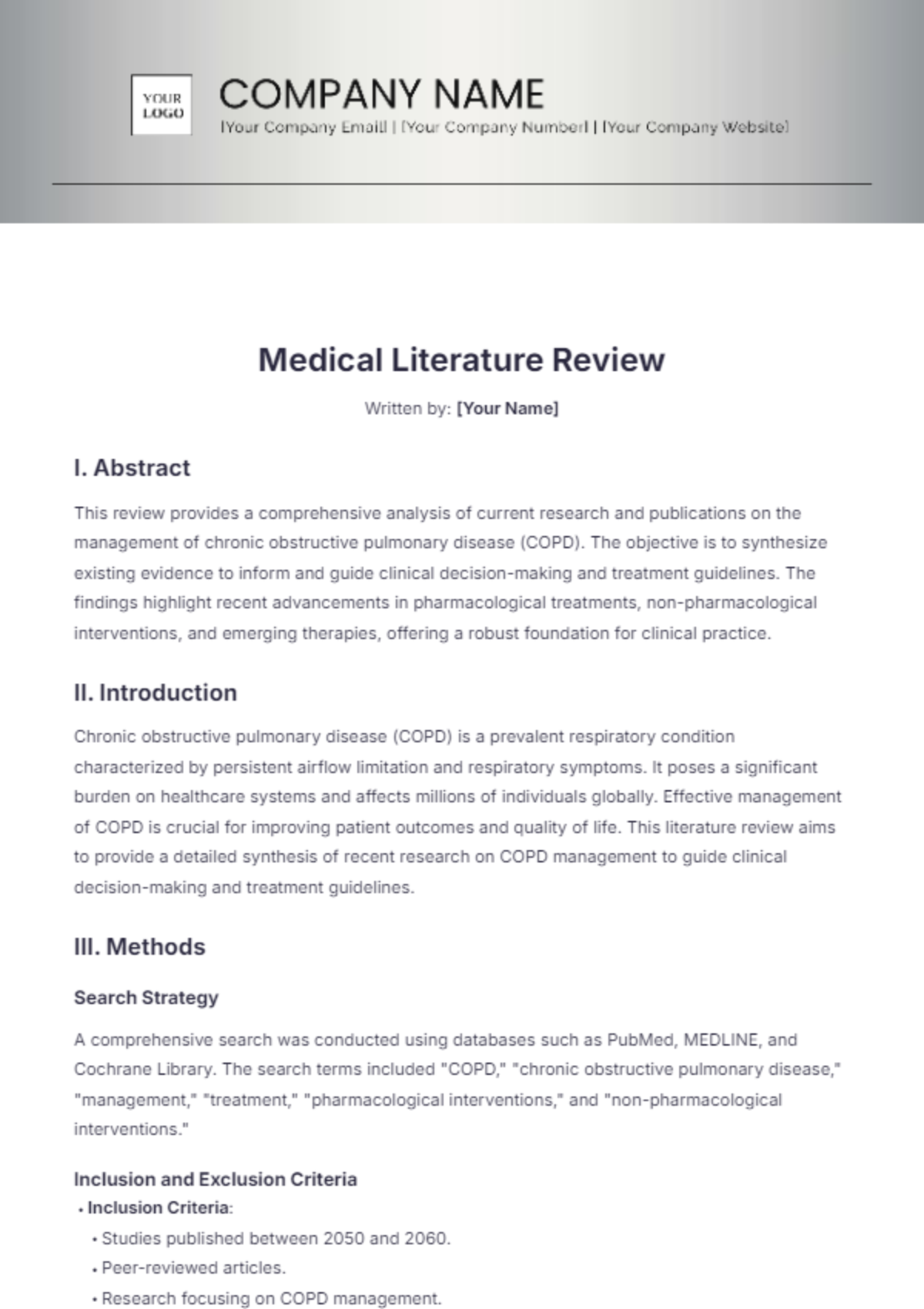Literature Review Format
Title of the Literature Review
A clear, concise title that indicates the focus of the review.
Introduction
Overview of the Topic: Briefly introduce the area of study.
Purpose of the Review: Explain why the literature review is necessary (e.g., to fill a knowledge gap, or to inform a research question).
Scope and Objectives: State the focus areas and objectives.
Thesis Statement or Hypothesis (if applicable): The central theme or argument of the review.
Methodology (if applicable)
Search Strategy: Explain the process of selecting sources (e.g., databases, keywords, inclusion/exclusion criteria).
Selection Criteria: Clarify the criteria for including or excluding studies (e.g., publication date, peer-reviewed articles).
Analysis Approach: Describe how the literature was analyzed (e.g., thematic analysis, chronological analysis).
Body of the Literature Review
This section organizes the literature based on themes, theories, or methods, depending on the approach you’ve chosen. The body may be divided into different sections based on these categories.
Section 1: Major Themes or Topics
Summary of key studies and findings in this theme.
Analysis of how studies contribute to the theme and the strengths/limitations of each study.
Identify gaps or contradictions in the literature.
Section 2: Theoretical Frameworks or Approaches
Overview of different theories or models used in the field.
Comparison and contrast of these frameworks.
Identify which theories have been most influential.
Section 3: Methodological Approaches
Discussion of the research methods used across studies.
Strengths and weaknesses of the methodologies.
Identify any trends or innovations in methodology.
Section 4: Emerging Trends or New Research Directions
Summarize new areas of interest and current debates in the field.
Point out any future directions for research.
Each section should be organized logically, and each subsection should build on the previous one. Provide citations as needed for every study you discuss.
Synthesis and Analysis
Summarize the key findings and trends from the literature.
Discuss how the research connects to the central theme or research question.
Point out inconsistencies, contradictions, or gaps in the research.
Evaluate the overall state of the literature in terms of strengths, weaknesses, and implications.
Conclusion
Summary of Key Points: Summarize the major findings and insights gained from the review.
Implications for Practice or Research: Suggest how the findings can influence future research or practice.
Recommendations for Future Research: Provide suggestions on areas that need more investigation or areas that are under-researched.
References/Bibliography
List all the sources cited in your review following the required citation style (e.g., APA, MLA, Chicago).
